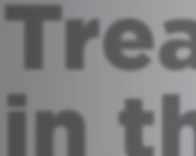







United purpose
Thousands attend rally for British Jews Page 3


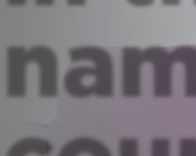









Thousands attend rally for British Jews Page 3



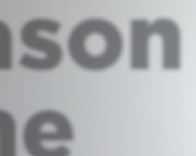



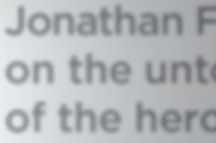

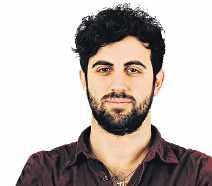

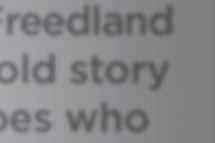
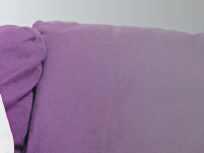


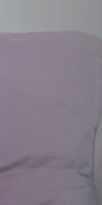

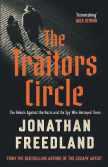

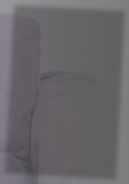

by Richard Ferrer and Lee Harpin editorial@jewishnews.co.uk
Israeli President Isaac Herzog arrived in London this week with a clear message for the UK’s beleaguered Jewish community: “I’ve got your back.”
In a visit framed by mounting antisemitism, deepening unease over the Gaza war, a UK freeze on certain arms to Israel, plans to recognise Palestinian statehood and mounting tensions over Israel’s strike on Hamas leaders in Qatar, Herzog sought to reassure diaspora Jews that their concerns are being heard loud and clear in Jerusalem.
In a wide-ranging interview with Jewish News on Wednesday, the president said: “I care. We care. Your voice is heard. Your voice must be heard. World Jewry is being attacked and harassed, which poses many questions for Israel in these dire and complicated
times. On the plane coming here, British Jews approached to me and said, ‘Thank you for coming to London to support us. Thank you for standing up for British Jews.”
Herzog, who has styled himself as both Israel’s head of state and a guardian of world Jewry, was explicit about his responsibility.
“I see as one of my main missions to protect and defend the Jewish people all over the world. I know Jews in Britain are facing many questions. My role is to make sure they know: Israel is with them. Always.”
The president, who arrived in the UK on Tuesday for a three-day visit, also acknowledged growing polarisation among British Jews regarding Israel’s direction of travel, domestically and in terms of the ongoing war in Gaza, noting that similar splits exist inside Israel itself. “I am aware of the issues and challenges the Jewish community in the UK
Continued on page 4
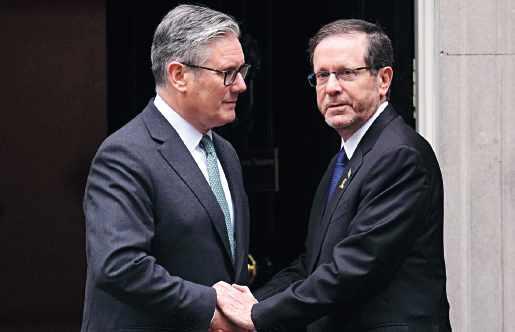
Six people were murdered on Monday and 12 wounded, six of them seriously, when a pair of Palestinian terrorists opened fire on vehicles and pedestrians in Jerusalem’s Ramot Junction, writes Annabel Sinclair.
The two gunmen, residents of the West Bank, arrived at the junction shortly after 10am, according to some reports, by car, and opened fire at people waiting at a bus stop as well as at a bus that had just stopped there.
Police said that a soldier and a number of civilians who were present at the scene fired at the terrorists and killed them.
The military said the soldier was an off-duty squad commander in the military’s new Hasmonean Brigade, a unit for ultra-Orthodox troops. Magen David Adom said four of the victims were declared dead at the scene, while two others were rushed to hospital and later succumbed to their wounds.
At least six others were listed in serious condition, as well as two whose status was moderate and three who were lightly hurt, according to MDA.
The dead were named as Levi Yitzhak Pash, 57, Yaakov Pinto, 25, Yisrael Matzner, 28, Rabbi Yosef David, 43, Rabbi Mordechai Steintzag, 79, and Sarah Mendelson,
60. The two terrorists were identified by the Shin Bet security agency as Mohammad Taha, 21, from Qatanna, and Muthanna Amro, 20, from Qubeiba. Neither had prior arrests, according to the Shin Bet.
The attackers used makeshift “Carlo” submachine guns, according to images from the scene. The improvised gun, also known as a Carl Gustav, is commonly manufactured at illegal workshops in the West Bank and has been used in numerous Palestinian attacks in the past.
Law enforcement officials also said the Shin Bet security agency had arrested a resident of East Jerusalem suspected of smuggling the two gunmen into Jerusalem by car. The man has had previous run-ins with law enforcement for trying to help Palestinians reside illegally in Israel, Kan news reported.

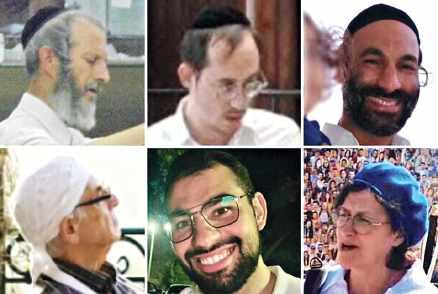
Prime Minister Benjamin Netanyahu later arrived at the scene, which he surveyed alongside National Security Minister Itamar Ben Gvir and MK Zvi Sukkot. The prime minister also entered the number 62 bus that had come under fire.
He offered his condolences to the families of the victims and wished a speedy recovery to the injured.
“A mighty war against terror is taking place on all fronts,” he told reporters at the scene. “We are now pursuing and encircling the villages
Security Minister Dan Jarvis has told MPS it is “absolutely shameful” that there were 17 assaults on police at a demonstration supporting Palestine Action last weekend.
He added these, and a total of 890 arrests, including others for violent acts, “rather undermines the credibility of those who say that these are entirely peaceful protests”.
Jarvis was speaking after Labour MP Stella Creasy tabled an urgent question in which she said arresting protesters for expressing support for Palestine Action was unsustainable.
Creasy said, “The case for acting on the group itself was and is strong. We’ve seen a pattern of violence at their events, and they have not disassociated themselves from that violence.”
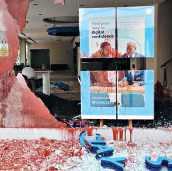
She also said people who had attended anti-immigrant protests had seen police and refugees targeted, without similar bans.
She continued: “This is just not sustainable for our police and our criminal justice system.
“There is a difference between people protesting using violence, and people protesting the use of proscription. If we don’t get the
response right, if we continue to arrest those in the second category, the seriousness of the term terrorism risks losing its meaning, becoming diluted rather than strengthened.
“Proscription was supposed to be about stopping those inciting direct harm and violence.”
In response, Home Office minister Jarvis said members of the group, which was banned in July, had been charged with violent disorder, grievous bodily harm with intent, actual bodily harm, and criminal damage.
Weapons had been used in its attacks, he told MPs, as he said Palestine Action had met the threshold for proscription.
He said supporting a proscribed organisation would never be acceptable, regardless of circumstances.
where the terrorists came from.”
Security forces have thwarted hundreds of attacks this year, “But unfortunately, not this morning,” he said.
“The fighting continues in the Gaza Strip,” Netanyahu said, adding that Israel “will destroy Hamas as we promised and free our hostages — all of our hostages.
“Sadly, the war also continues in Jerusalem and in Judea and Samaria, where we have acted with great force,” he said, using the biblical term for the West Bank.

Four IDF soldiers were killed in a Hamas attack on the outskirts of Gaza City on Monday morning, the military have announced.
The news came as Prime Minister Benjamin Netanyahu issued a warning to the residents of Gaza City to “get out,” and as the IDF continued its heavy bombardment ahead of an imminent ground offensive to capture the major city.
The four slain troops were named as: Lt. Matan Abramovitz, 21, from Ganei Tikva, Staff Sgt. Uri Lamed, 20, from Tel Mond, Sgt. Amit Arye Regev, 19, from Modiin and Sgt. Gadi Cotal, 20, from Kibbutz Afikim. They all served with the 401st Armored Brigade’s 52nd Battalion.
A soldier of the Nahal Brigade’s 50th Battalion was also moderately wounded, the army said.
According to a preliminary IDF probe, Hamas operatives launched an attack on an army encampment in the Kafr Jabalia area, on the outskirts of Gaza City’s Sheikh Radwan neighbourhood.
David Lammy has said an assessment carried out by the Foreign Office has concluded Israel’s actions in Gaza do not constitute “genocide”.
The former foreign secretary wrote to the chair of the International Development Committee, Sarah Champion, last week, while still in post.
He said: “As per the Genocide Convention, the crime of genocide occurs only where there is specific ‘intent to destroy, in whole or in part, a national, ethnic, racial or reli-

gious group’. The government has not concluded that Israel is acting with that intent.”
Champion, Labour MP for Rotherham, had written
to Lammy repeating claims that the UK’s policy of continuing to supply parts for F-35 fighter jets that have indirectly been sent to Israel was aiding genocide in Gaza.
The Times reported that Lammy said the government had “carefully considered” the question of genocide. While it could not conclude Israel was guilty of this, he described the war in Gaza as “utterly appalling” and added far too many women and children had been killed.

An Israeli citizen held hostage for more than two years in Iraq has been released by the terrorist militia that took her captive, with her sister praising both Donald Trump and Benjamin Netanyahu for their efforts to bring her home.
Elizabeth Tsurkov, an Israeli cit-
izen, was taken prisoner in Baghdad in March 2023 while doing doctoral research for her dissertation at Princeton University.
When her Israeli citizenship was discovered, the group decided to take her captive, initially denying that they had done so.
The Chief Rabbi has told thousands of demonstrators the UK’s expected recognition of Palestine “strengthens extremists in our midst”, stepping up condemnation of the move, writes Justin Cohen.
His comments came during Campaign Against Antisemitism’s third annual demonstration in Parliament Square, where he was joined by shadow Home Secretary Chris Philp and Reform UK deputy leader Richard Tice.
The Government chose not to send a representative, leading to shouts of “traitors” and the unfurling of a banner saying, “This stage has intentionally been left blank.”
Sir Ephraim Mirvis said: “Long before 7 October, antisemitism was spiralling and once Hamas launched their horrific attack we have seen an explosion of hatred... the Britain we have always loved is a great country which champions tolerance for one and all. That is the beauty we want to have in the future.”
After joining an 75-minute march from Marylebone past the BBC to
Westminster, he told the crowd that recognition while Hamas controls Gaza and continues to hold hostages “achieves one thing in the UK – it strengthens the hand of the extremists in our midst”.
The Chief Rabbi said: “We pray for each innocent person in the region… we vow to continue to do whatever we can for the hostages”.
With the words ‘Stand Up For Our Values’ emblazoned on stage, CAA chief executive Gideon Falter had begun the rally with a minute’s silence for victims of the Hamas atrocities.
He listed some of the antisemitic incidents in the UK in the last two weeks, including synagogues daubed with faeces and a rabbi’s home defaced with a swastika.
“This is a wake up call because time is running out. We need this country to deal with incitement, we need enforcement of the law, we need proscriptions. It’s a simple recipe.”
He said university students who set up encampments must be expelled and condemned the BBC to huge applause, calling for “an independent

probe into bias and brainwashing at the BBC . If what it takes is a suspension of the license fee then so be it.
“Put the Met into special measures, replace the commissioner... our
Richard Tice has claimed that more than one-in-five members of the British Parliament are antisemitic.
Reform UK’s deputy leader made the extraordinary claim on the back of a YouGov poll for Campaign Against Antisemitism, suggesting 21 percent of British adults believe in at least four antisemitic tropes. That figure represents a near doubling in five years.
Looking at the Palace of Westminster during his address to CAA’s rally against antisemitism, Tice said: “Let me tell you, the percentage
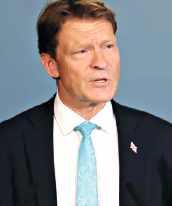
of antisemites in that place is way higher than 21 percent... from all parts of the House of Commons.”
Scotland’s most senior politician has been told his recent announcements about Israel risk inflaming antisemitism and further endangering the country’s Jewish community, with thousands accusing his government of having “calculated that the cost of alienating Scotland’s Jews will be outweighed by electoral rewards.”
He didn’t o er any more detail on the claim.
He accused the Government of an “abdication of leadership” over recognising a Palestinian state and insisted there would have been less of a rise in Jew-hate if proPalestinian marches had been banned from the start.
Chris Philp, a minister in the last Tory government that resisted calls to ban Iran’s Islamic Revolutionary Guards Corps, told the rally he was in no doubt the group should be banned. He also vowed to “eradicate” antisemitism.
In an open letter to Scotland’s First Minister, John Swinney, close to 3,000 signatories described his recent comments as a “decision made to appease a small, extremist, and increasingly aggressive fringe of the activist class”. Last week, Swinney repeatedly described Israel’s war against Hamas in Gaza as a genocide and announced that the Scottish government would halt any support for defence companies supplying Israel.
The signatories of the letter organised by the Scotland Against Antisemitism group, including lawyers, politicians, educators, clergy, students, and concerned citizens, described the charge of genocide as requiring “an exceptional standard of proof that can only be met in a court of law by producing irrefutable evidence of intent”.

country can still recover its greatness and if it does the Jewish community will still have a home here.”
Pointing to the statue of Winston Churchill nearby, Falter added:


“This Britain is still Churchill’s island nation that stands for decency and reasonable debate. What would he make of Britain now? Britain... act against hate before it’s too late.”












Damage to a building in Doha following Tuesday’s attack by Israel
The UK was given no advance notice of Israel’s strikes on the leadership of Hamas in Qatar, Downing Street has confirmed.
Keir Starmer’s spokesperson said the attacks in Doha were an “Israeli-led operation,” pointing to Benjamin Netanyahu’s statement confirming the strikes had been carried out independently.
In a post on X, Starmer later said he would “condemn Israel’s strikes on Doha, which violate Qatar’s sovereignty and risk further escalation across the region”.
No.10 earlier confirmed the strikes did not impact the meeting between the PM and Israel’s President Isaac Herzog at Downing Street tomorrow, adding talks would focus on the “intolerable situation in Gaza and the action Israel must take to end the horrific su ering we are witnessing, which can not go any longer”.
“The Prime Minister has been very clear about that,” he added, and was engaging with Israeli and Palestinian leaders in diplomatic e orts to bring the conflict to an end.
Speaking as details of the Doha strikes continued to come in, No.10 said:”Hamas are a vile terrorist organisation, responsible for the abhorrent 7 October attack on Israel.
“But we do not want to see a further escalation in violence that risks further destabilisation in the region.
“Our priority is to see an end to the violence in the Gaza Strip, starting with a ceasefire, the release of all the remaining Israeli hostages, and a surge of humanitarian aid, leading to a path to peace for Israelis and for Palestinians”.
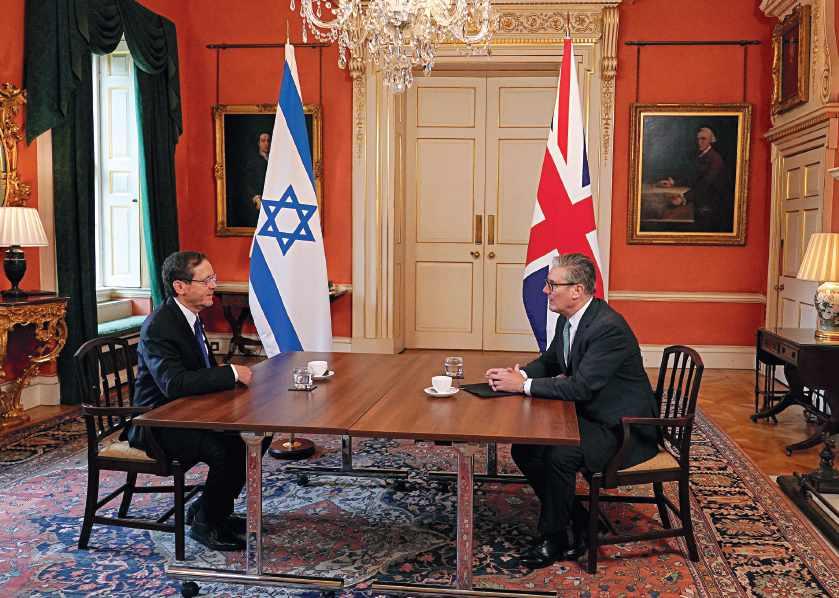
Continued from page 1
faces. Much of it is a mirror image of debates occurring in Israel as well. Throughout Jewish history, when the story of Zionism emerged, there were divides and splits all the time. Part of my visit is to say to British Jews: I hear your concerns. Israel hears them. And to say to the rest of the UK: never forget that Israel is a democracy. Israel was attacked on 7
October and had been through hell ever since. If only Hamas would release our hostages, the whole region would look di erent.”
Turning to the wider diplomatic arena, Herzog railed against what he described as “a brainwashing machine” aimed at undermining Israel’s legitimacy.
He accused unnamed governments and international institutions of amplifying falsehoods about the conduct of the war.
Speaking hours before meeting Sir Keir Starmer, he reserved particular criticism for the prime minister’s declared support for recognising a Palestinian state at the United Nations later this month. “It is a mistake. Why do this when we are still trying to get our hostages out of Gaza?”
Herzog confirmed that estimates on the number of hostages still alive in remains at 20, with a further 28 believed to have per-
BY LEAVING A GIFT TO ONE OF OUR CHARITY PARTNERS IN YOUR WILL
ished in captivity, almost two years after they were taken.
Herzog, who arrived in London just hours after Israel targeted Hamas leaders in Qatar, insisted that the terror group’s leadership must be entirely removed if there is to be hope for peace.
In his Downing Street meeting later on Wednesday, Herzog reportedly voiced opposition to the British Government’s expected recognition of a Palestinian state. He argued that such a move would reward terror and jeopardise efforts to free the hostages still held in Gaza. The pair shook hands, but there was none of the warm embraces reserved for other world leaders in recent months from Starmer.
Herzog is also understood to have strongly opposed UK sanctions, describing them as unacceptable between allies, and warned against amplifying Hamas propaganda over claims of starvation in Gaza.
He also spoke about Israel’s fight against Iran and its regional proxies as part of a wider struggle for the entire free world, stressing that the UK must not bow to extremist pressure and should instead demand the hostages’ immediate and unconditional release.
A red smoke canister was thrown by a protester towards the Israeli president’s convoy of vehicles as it left Downing Street.
Police were seen detaining a person and removing the smoke canister after the convoy continued down Whitehall.
After the meeting, Herzog admitted that “things that were said were tough and strong”, but Israel’s president insisted: “When allies meet they can argue.”
A UK government source told Jewish News Wednesday’s meeting was “frank and tense” as the pair expressed different views around Israel’s conduct in Gaza, and had a “major difference of opinion” over Palestine recognition.
Prior to their talks, Starmer, said he would make it “absolutely clear” to the Israeli president “that we condemn Israel’s action” in bombing Hamas leaders in Qatar.
Speaking at Prime Minister’s Questions, Sir Keir said: “I condemn the strikes that Israel carried out in Doha yesterday. They violate Qatar’s sovereignty, they do nothing to secure the peace that the UK and so many of our allies are committed to.
“I spoke to the Emir of Qatar last night, soon after the attack, to convey our support and
solidarity. He was crystal clear that notwithstanding the attacks, he will continue to work on a diplomatic solution to achieve a ceasefire and a two-state outcome. He and I are on the same mind on this. That is why I met (Palestinian) president Abbas on Monday, and why I will meet president Herzog later on today.”
Responding to a question from the SNP’s Westminster leader, Stephen Flynn, who questioned why he was meeting with Herzog, Keir Starmer said: “I will not give up on diplomacy –that is the politics of students.”
Flynn had asked: “Would he invite Vladimir Putin into No 10? Would he invite Benjamin Netanyahu into No 10? What does it say of this Prime Minister that he will harbour this man whilst children starve?”
The PM replied: “We have suspended arms that could be used in Gaza, we have sanctioned extremists, we suspended trade talks. But the point raised is a very serious one. We all want an outcome that ensures peace, that the hostages get out, that aid gets in under a two-state outcome. It is the only way we will get peace in a region that has suffered conflict for a very, very long time.
Foreign Secretary Yvette Cooper met with
Herzog on Wednesday morning, where she raised “the urgent need both to ensure aid into Gaza, further Israeli support to British efforts to medically evacuate injured children and fully funded scholarships to the UK”.
The UK is also backing calls for an emergency session of the UN Security Council to take place, Middle East minister Hamish Falconer told the Commons, as he responded to an urgent question on Israel’s strikes in Qatar.
“It is vital that at such serious moments, the UN Security Council plays its full part,” Falconer said.
New Green Party leader Zack Polanski said the prime minister’s meeting with Herzog was a “brutal insult” to those suffering in Gaza.
Polanski said: “Officers from Scotland Yard’s War Crimes Unit should be waiting on the other side of the door to Number 10 ready to handcuff Herzog and take him away for questioning. The Israeli president has been complicit while the Israeli government has engaged in committing genocide in Gaza.
Liberal Democrats leader Sir Ed Davey urged the prime minister to summon the Israeli ambassador to Downing Street after Israel’s strikes on Hamas leaders in Qatar.
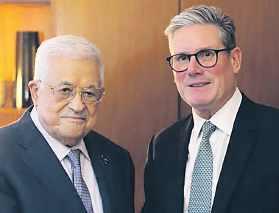









Palestinian President Mahmoud Abbas called for an end to “the aggression, destruction and starvation being inflicted upon the Palestinian people” at a meeting with Keir Starmer in Downing Street this week.
The pair meet at No.10 on Monday evening, with the UK government only weeks away from recognition of a Palestinian state.
The meeting with Abbas came in the wake of the terrorist attack, that killed six and left many others injured, in Jerusalem on Monday morning. In a statement the Palestinian Authority presidency said of the deadly attack:









“The presidency affirms its stance in rejecting and condemning any harm to Palestinian and Israeli civilians, and rejects all forms of violence, regardless of their source.”
But it added: “Security and stability will not be achieved without an end to the occupation“ and that Palestinian statehood “is the sole guarantee for ending the cycle of violence in the region.”
Starmer had previously met with Abbas brieft at the United Nations General Assembly in New York. He has also previously hosted the Palestinian PM Mohammad Mustafa at Downing Street, to agree a mem-








orandum of understanding, over a process towards a two-state solution.
Downing Street has previously indicated the government will recognise a Palestinian state later this month, ahead of the meeting of the United Nations general assembly.
The PM’s spokesperson said: “We continue to intend to recognise the state of Palestine before the UN general assembly, subject to the conditions that we set out.
“We’ve been very clear that Hamas will play no role in the future governance of Gaza or the West Bank, and must commit to disarmament.”


Whether you choose to honour and celebrate your loved one in our Book of Memories, on a personalised Yahrzeit glass or on one of our Trees of Memories, Jewish Care’s Giving in Memory programme can help their memory live on.
For more information visit jewishcare.org/giving-in-memory
Call 020 8922 2840 or email givinginmemory@jcare.org
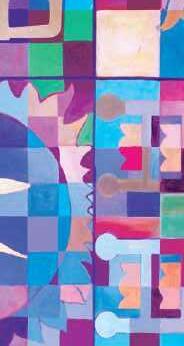
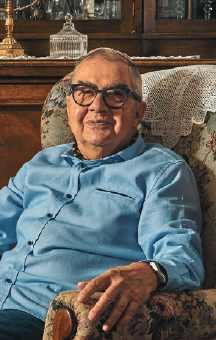
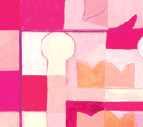



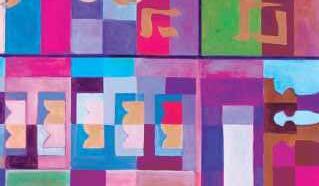


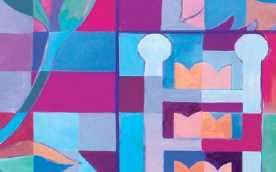


We are delighted to invite you to our

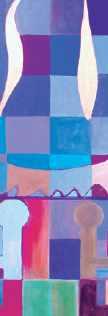




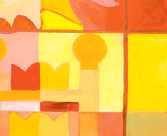






With Guest Speaker Brendan O’Neill journalist, author and champion of Israel
Wednesday 17th September 2025 3pm-5pm
Venue: North West London
Price £20 per person
RSVP: 020 8732 6143 or email kklevents@kkl.org.uk
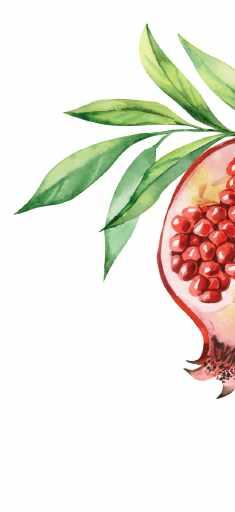
by Lee Harpin lee@jewishnews.co.uk
BBC director general Tim Davie has admitted the corporation aired “an antisemitic broadcast” with its coverage of Bob Vylan’s Glastonbury performance.
Appearing before the Culture, Media and Sport Committee in Westminster on Tuesday, Davie said that broadcasting the concert, at which the lead singer led chants of ‘death, death to the IDF’ was a “very significant mistake”.
He added, “I knew absolutely that it was an antisemitic broadcast. I mean, the BBC made a very significant mistake.”
Davie told the MPs he had arrived at the festival himself in June at around 5pm, a couple of hours after the Bob Vylan concert had been aired by the BBC.
He added: “I don’t think I misread it, I just got there when I heard about it at about 5pm… the performance was well done by then and at that point I knew absolutely that it was an antisemitic broadcast.
“So, my decision to get that off on demand,
simple as that, I mean, it wasn’t too complicated in my mind, and to your point, I do think it was deeply disturbing, deeply disturbing.
“I’ve talked to many people about this, I thought was deeply disturbing what happened, I mean, the BBC made a very significant mistake, very significant, in broadcasting that. But the fact those words were broadcast to that broad audience was disturbing.”
Discussing the BBC’s response to the decision to broadcast the Bob Vylan performance, Davie confirmed that those responsible were facing an ongoing process.
He appeared to suggest some of these individuals were experienced BBC staffers, and that they were upset by what had happened with the Glastonbury broadcast.
Davie later said that Israel not allowing journalists into Gaza is “unacceptable” while speaking to MPs on the Culture, Media and Sport Committee. He said: “I think we should all say that not allowing journalists into Gaza is unacceptable and it really is… in my view, this is probably the toughest editorial coverage challenge we’ve ever had.”
The 58-year-old continued: “It’s important
• Tax-efficient investing before and after Aliyah
• Tax-efficient income after 10-year tax-free period
• Receive your entire pension pot tax-free
• Specialist portfolio management for Olim
• No Inheritance Tax (for non-UK-situated assets)
We are seasoned experts in providing long-term financial planning advice for those making Aliyah. Scan the QR code to read more
With investing, your capital is at risk. Tax treatments are subject to individual circumstances and are subject to change.
that we all stand and say, ‘look we need access, because we can look at the story like aid centres or whatever and hospitals’, but there’s nothing like having a proper journalist with our standards on the ground doing the work. So I would ask us to get access and the idea that we can’t go into war zones is absurd, because we’ve done that for years and we know what we’re doing.”
He also told the committee he thinks the corporation made the “right decision” to not air Gaza: Doctors Under Attack, which was later shown on Channel 4.
Davie was asked by Labour MP Paul Waugh whether the BBC had been “over-cautious” in not screening it. He replied: “No, I think we made the right decision, but I don’t think it’s news by the way from our side here, in terms of the work it’s current affairs.
“There’s a slight difference in terms of a doc… it’s fairly straightforward where we were, which is we were a little bit frustrated, because clearly the voice is the medics. We’ve given a lot of voice on our airways, by the way, and on our news coverage, to medics working in Gaza under extreme conditions and the terrible things they’re having to face,

which is horrendous, but in this film it’s pretty straightforward.”
Davie said the BBC has “executed the recommendations” after a report found the corporation failed to disclose information about the child narrator’s father’s position within the Hamas-run government in the BBC’s Gaza: How To Survive A Warzone documentary.
The film, produced by the independent production company HOYO Films for the BBC, was removed from BBC iPlayer in February after it was revealed that the child narrator, Abdullah, is the son of Ayman Alyazouri, who has worked as Hamas’s deputy minister of agriculture.
Davie said: “There are people who are facing consequences.” He added: “It was a bad mistake. I think the report also says HOYO Films not disclosing that information was important to us.”

An organisation described by international media as “the world’s leading association of genocide scholars” after it voted in favour of a motion to describe Israel’s actions in Gaza as genocide has been revealed as an organisation offering open membership, meaning anyone can join and become a voting member if they pay a nominal fee, writes Adam Decker.
Last month the International Association of Genocide Scholars voted on a motion to describe Israel’s actions in Gaza as a genocide. Around 28% of the organisation’s 500+ members voted on the motion, with 82% of those voting supporting it. The IAGS’s adoption of the motion was reported worldwide – the BBC’s headline was “Israel committing genocide in Gaza, world’s leading experts say”, while the Guardian went with the similar, “Israel committing genocide in Gaza, world’s top scholars on the crime say”.
However, it soon emerged that the way the vote had been conducted was highly irregular, with Dr Sarah Brown, a longstanding member of the IAGS,
describing how “the process was a disaster from start to finish. Those of us against the resolution tried to submit our concerns for discussion but were blocked by the leadership.
“We were promised a town hall... common practice for controversial resolutions, but the president of the association reversed that. The association has also refused to disclose the authors of the resolution.”
It then emerged that while the IAGS does have respected genocide scholars as members, the organisation’s membership model meant it was also open to “artists”, “activists” and others with no relevant qualifications. Salo Aizenberg, a board member of the Honest Reporting media watchdog, described how he was able to join AIGS simply after paying membership dues – priced at $125, but as low as $30 to those suffering from financial constraints. Furthermore, it was discovered that the organisation had approximately 150 members prior to 7 October, but that its membership had risen

to more than 500 since. The IAGS did not reveal which of its members voted in favour of the Gaza resolution, meaning many who voted for it may have had no relevant expertise.
The IAGS has now removed its new members page from its website and taken down its members list.
Aizenberg said: “When an organi-
sation with no standards, no transparency, and no accountability makes sweeping pronouncements about ‘genocide,’ it isn’t scholarship – it’s politics masquerading as scholarship. And everyone deserves to know the difference.” The IAGS has been contacted for comment.
• Dr Stephen Smith, page 31
The General Secretary of the TUC has accused Benjamin Netanyahu of committing genocide in Gaza in his keynote speech to the annual conference.

To applause, Paul Nowak said: “Congress, Israeli and Palestinian human rights groups are clear.
“Amnesty International is clear. Medicine Sans Frontieres is clear. And I think we should be clear as well. Benjamin Netanyahu’s government is committing genocide in the Gaza Strip”.
In his speech, which did not reference the terror attack in Jerusalem that morning, Nowak also called for immediate recognition of a Palestinian state, suspension of the UK trade deal with Israel, tougher sanctions, a ban on imports from the occupied territories and the end of arms trade licences with Israel.
During the speech, Shaher Saed, general secretary of the Palestinian General Federation of Trade Unions, was given a standing ovation from delegates.
Micah’s diagnosis was incredibly difficult for us, but thanks to JDA, we could cope and give our son the best start in life.”
By donating to JDA this Rosh Hashanah, you’ll be helping Micah — and people experiencing hearing loss at all stages of life — live the best life possible.
From supporting children in schools, to people losing their hearing at any age, to older people in care homes, we’re now helping all Jewish community organisations to become more inclusive, ensuring everyone with hearing loss can access the services they need – including urgent medical rescue, cancer therapies and mental health support.
JDA is the Jewish community’s specialist in hearing loss – and, with no government funding, we rely entirely on donations and legacies from generous supporters like you.


Please show you care by making a donation.
Scan the QR code, visit jdeaf.org.uk or call 020 8446 0502. Thank you.





The ongoing war in Ukraine has meant a catastrophic learning crisis for children. They are falling far behind and are traumatised.
Thousands of children are waiting to be supported; thousands of children need your help.
By donating this Rosh Hashanah, you are giving them psychological support, educational support and the chance of a better future.
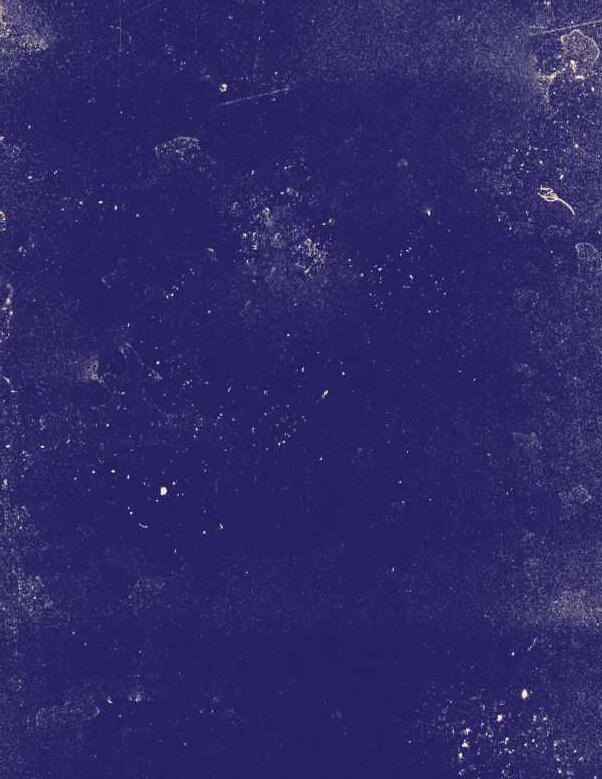
This Rosh Hashanah will you give a child a future?

The Jewish community’s key security charity this week described how antisemitism within the NHS “risks becoming an epidemic”, after a senior paediatrician at a London hospital was found to have regularly posted about “Jewish supremacy” while describing Hamas as “oppressed resistance fighters”, writes Joy Falk.
Dr Ellen Kreisels, a consultant developmental paediatrician, clinical lead and named doctor for child protection, was pictured at an anti-Israel demonstration on Saturday, holding a sign featuring a flag of Israel – with the six points of the Star of David emblazoned with the words “Rape”, “Steal”, “Cry”, “Lie”, “Cheat” and “Kill”.
A social media account featuring Kreisels’ name and picture was found to have been sharing extreme messages directed at Jews –including anti-Zionist Jews, whose denunciations of Israel’s actions in Gaza appear to have not been satisfactory enough for her.
“Virtually every Jew has some feelings of supremacy (result of their Zionist upbringing) and they might oppose Zionism, but they are not going to challenge their precious community. That just doesn’t feel right to them!” Kreisels wrote in a response to Rahmeh Aladwan, another doctor notorious for her diatribes about “Jewish supremacy”.
Another reads: “When one claims to oppose Zionism but goes on and on about their Jewish heritage and Jewish millennia of persecution, one shows their feelings of Jewish supremacy, never mind they oppose

the political ideology of Zionism. Jewish supremacy underpins Zionism.”
Responding to condemnation of Jews who held up “Not in my name” signs opposing Israel’s actions in Gaza, she added: “It can only be chanted by Jews, emphasising their perceived exclusivity. Same with the Jewish bloc at marches; emphasising Jewish exclusivity. Did men form male exclusive blocs at ‘Me Too’ marches? Or whites at BLM marches? Jewish supremacy at every turn.”
Responding to a Twitter account which described Jews as being “addicted to victimisation”, Kriesels said: “Jewish supremacy is the ideology at the root of all this evil. Jewish supremacy is prevalent among Jews who are into Judaism (religious/observant) and amongst Jews who are not into Judaism but are still as Jewish. They are into ‘Jewishness’. Ridiculous, I know.”
In response to a tweet from a Canadianbased doctor claiming, among other things, that “Jews are the most racist, violent people on earth”, Kriesels said: “And anybody saying ‘not all Jews’ doesn’t get it. You are like the ‘not all men’ (Me Too protests) and ‘all lives matter’ (BLM protest) brigades. Clutching your pearls and deflecting from the evil that is going on; Jews slaughtering non-Jews.”
Responding to Jewish News, a Community Security Trust spokesperson said: “The antisemitism problem within the NHS risks becoming an epidemic. It is blatantly obvious that if these racist comments were made about any other minority, both the hospital and the General Medical Council would immediately act with severe professional consequences for Dr Kreisels.”
Last month Kreisels said that she had “Just graduated from thinking ‘It is Zionism, nothing to do with Judaism’, to ‘it is Jewish supremacy’. This recent change in understanding the root of the problem has also made me aware that maybe I am not quite there yet and have further to go!”
Last week when a notorious anti-Israel Twitter account prefaced an anti-Israel tweet by saying, “No one wishes any harm to Jewish people. To say otherwise is a complete lie”–Kriesel’s response was, “Why the disclaimer?”
Even some of the UK’s most vehemently

anti-Zionist Jews have found themselves on the receiving end of Kreisels’ purity tests.
She described on social media how she had been blocked by Michael Rosen. She had asked him: “Do you FULLY oppose Zionism? Some of your posts are a bit o and I just wonder whether you think that there are some good or reasonable bits to Zionism.” When he responded telling her that she wasn’t a “prosecutor, judge, interrogator, political comrade in action, journalist who I’ve agreed can interview me, torturer or one of my parents”, Kreisels responded: “Hit a nerve, did I? When the mask comes o … nice to have my hunch confirmed.”
And in response to now-notorious comments by the actress Miriam Margolyes about Gaza that “Hitler won; he changed us”, Kriesels asked: “Why mention your sense of victimhood AT ALL when your fellow Jews are committing a gleeful genocide?”
When the anti-Zionist Jewish Voice for Labour group attempted to question her depiction of Jews, Kriesels claimed that “feelings of superiority is a minority view in each group. Amongst Jews; vast majority”.
Talking about 7 October 2023, when Hamas murdered 1,200 men, woman and children, the paediatrician said: “Some Jews
‘merely’ say it was a progrom [sic]. Other Jews ‘merely’ say that it was antisemitic. Always trying to frame the Jews as victims. So ridiculous,. So excruciating. So exhausting.”
Specifically describing Hamas members killed in Gaza, Kriesels said: “The non-civilians are Hamas and whether they are 1% or 18% of the Palestinians slaughtered, they should not have been killed either. Do not whitewash the murder of Hamas members. They are a political party and oppressed resistance fighters. NOT terrorists.”
Kreisels also said that “’Jewishness’ is not an ethnicity but Ashkenazi Jews ARE a (sub) ethnicity. Like Slavics or Scandinavians. In theory you could thus be racist to this group. The fact is very few are truly racist towards this group (and the other groups). It is a hoax.”
The Whittington Health NHS Trust said: “We have heard the concerns relating to one of our employees raised on social media in recent days. We are taking appropriate action to investigate and it would not be appropriate to comment further on an internal management issue. However, we do wish to make clear that there is no place at Whittington Health for any form of discrimination. Opinions employees express privately do not reflect the views of the Trust.”
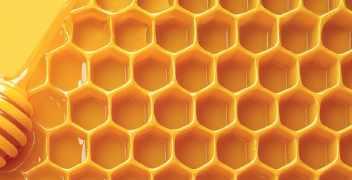
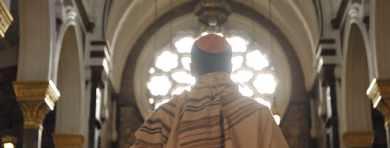




“The Technion has helped visualize, plan, and implement Israel’s growth. It has aided in transforming a tiny country into a great center of science and research, sharing its advances with others.”

Please support the Technion, secure Israel’s future and help shape the world.
If you are writing or changing your will, we can arrange a suitable legal advisor for you.
Contact the CEO Alan Aziz in strict confidence: CEO@technionuk.org | 020 7495 6824

“It is fortunate that the Technion was built before the State of Israel. Had it been the other way around, who knows what would have happened. The Technion built the State of Israel and deserves the credit for this.”
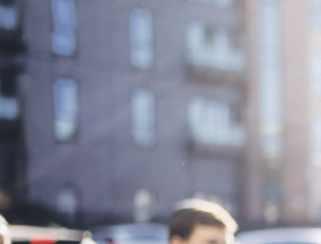
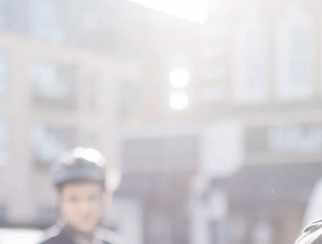

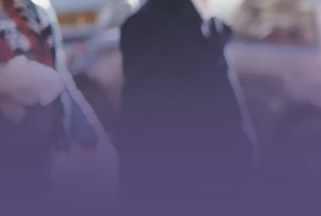
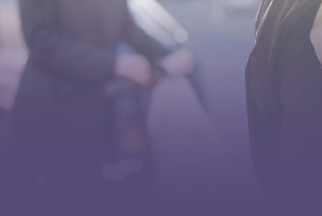


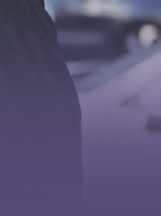
Open Evening Wednesday 22 October

A Golders Green synagogue has become the fifth Jewish site targeted in a wave of antisemitic vandalism that police and community groups say is the work of the same suspect, writes Annabel Sinclair.
Excrement was discovered smeared across the entrance of the synagogue on 2 September. CCTV footage reviewed by Shomrim North West London confirms the attack was carried out by the same individual linked to four incidents in the area.
The four other incidents already confirmed faeces smeared on synagogues and walkways used by worshippers, and a bucket of urine thrown towards a Jewish school.
A Shomrim spokesperson said: “With five confirmed attacks in just over a week, it is clear that this is a deliberate and targeted campaign of antisemitic hate. Synagogues, a
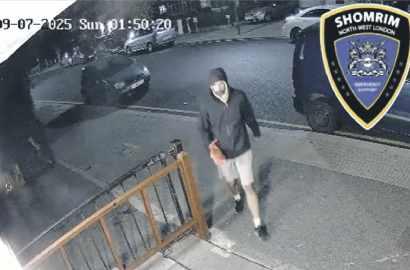
school, and even a passageway used by worshippers have now all been defiled. Our community will not be intimidated, and Shomrim is working hand in hand with the police to ensure
this individual is caught and brought to justice.”
Sarah Sackman, Labour MP for Finchley and Golders Green, condemned the attacks, calling the vandalism “sickening” and
vowing to work closely with police, Shomrim, and Barnet Council to ensure the suspect is brought to justice.
The Metropolitan Police confirmed it is investigating the series as religiously motivated criminal damage and has appealed for the public’s help to trace the suspect.
Detective Superintendent Tony Bellis, who is leading the investigation, said: “This is a revolting and appalling act and we are urging the public to help us locate those responsible as soon as possible. We are actively engaging with the local community and remain in discussion with community partners and key stakeholders to provide reassurance and support.”
No arrests have been made.
• Anyone with information is urged to call police on 101, quoting reference 1071/03SEP
Oscar-winning actress Olivia Colman has joined more than 1,200 filmmakers, actors, and crew in pledging to boycott Israeli cultural institutions accused of being “implicated in genocide and apartheid against the Palestinian people”, writes Annabel Sinclair.
The commitment, organised by the campaign group Film Workers for Palestine and released on Monday, states that signatories will not screen films, appear at or collaborate with Israeli festivals, broadcasters, cinemas, or production companies said to be complicit.
“Inspired by Filmmakers United Against Apartheid, who refused to screen their films in apartheid South Africa, we pledge not to screen films, appear at, or otherwise work with Israeli film institutions – including festivals, cinemas, broadcasters, and production companies – that are implicated in genocide and apartheid against the Palestinian people,” the statement reads.
The letter cites the International Court of Justice’s ruling that there is a “plausible risk of genocide in Gaza” and argues that refusing collaboration with state-linked institutions is a “profound moral duty.” It defines complicity as “whitewashing or justifying genocide and apartheid, and/or partnering with the government committing them.”
Prominent names alongside Colman include Ava DuVernay, Yorgos Lanthimos, Tilda Swinton, Riz Ahmed, and Mark Ru alo.


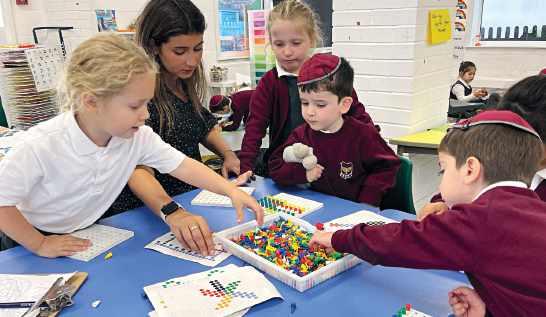
Bright Future

More than 40 young Jewish adults gathered in London this week for a Jewish Leadership Council (JLC) summit tackling challenges to strengthening Jewish identity after youth movements and university Jewish societies, writes Annabel Sinclair.
Participants mapped needs and build project proposals, with seed funding pledges for the strongest ideas.
Chatham House-style rules were adopted to allow a more open discussion.
Grassroots entrepreneurs, including Emily Theodore, founder of MizzRaqi and Moses Seitler, founder of Screen Share, a project providing laptops for refugees, described their journeys of starting projects.
Theodore told participants: “I wanted a space where Jews of Mizrachi and Sephardi heritage could feel represented, hear music
they connected to, and meet others. The first event had 30 people. The last one had 180. It showed me demand was there – it just needed someone to start it.”
For attendees, the message struck a chord. Victoria Caplin, 23, a healthcare communictions worker, said: “It’s quite hard, especially now, to find jobs and feel secure. Being here, surrounded by people going through the same thing, makes you feel less alone.”
The summit followed a JLC-commissioned study published last month by the Institute for Jewish Policy Research (JPR), which found family life and peer-led experiences play the biggest role in shaping Jewish identity but warned of a “critical gap” once young adults leave university.
The JLC closed the evening with a pledge to back promising pilot schemes.
Tuesday 24th September
Limited places available for September 2025
Limited places available for September 2025
Calling all Prospective Nursery & Reception families
Wednesday 30th October,
Calling all Prospective Nursery & Reception families
We will be holding open mornings at 10 am
We will be holding open mornings at 10am
Places available for September 2026
Thursday 14th November
Monday 19th May
Tuesday 24th September
Limited places available for September 2025
Tuesday 21st October
Limited places available for September 2025
we will be holding open mornings at 10am
be playing under the FIDE flag.”
Wednesday 30th October,
Thursday 22nd May
Tuesday 28th October
We will be holding open mornings at 10 am
Thursday 14th November
We will be holding open mornings at 10am
Monday 19th May
You will have personal tours of our wonderful school, get to meet our Head Teacher and see the school in action. Some spaces are available across the school.
we will be holding open mornings at 10am
Tuesday 21st October
Thursday 22nd May
You will have personal tours of our wonderful school, get to meet our Head Teacher and see the school in action. Some spaces are available across the school.If these days are not convenient please call to make an individual appointment.
Tuesday 28th October
You will have personal tours of our wonderful school, get to meet our Head Teacher and see the school in action. Some spaces are available across the school.
The International Chess Federation (FIDE) has condemned a Spanish chess tournament’s apparent demand that Israeli players not compete under their country’s flag, stating that it “had no prior knowledge of this decision”.
A widely-circulated email purporting to be from the competition’s organisers added that “this measure has been agreed upon by both the main arbiter and the Spanish Chess Federation… If you do not accept this rule, you will not be able to participate.”
To attend, please email admin@hasmonean-pri.barnet.sch.uk or phone the Office on 020 82027704
You will have personal tours of our wonderful school, get to meet our Head Teacher and see the school in action. Some spaces are available across the school.If these days are not convenient please call to make an individual appointment.
If these days are not convenient please call to make an individual appointment. email admin@hasmonean-pri.barnet.sch.uk or phone the Office on 020 82027704
email office@hasmonean-pri.barnet.sch.uk or phone the Office on 020 8202 7704
To attend, please email admin@hasmonean-pri.barnet.sch.uk or phone the Office on 020 82027704
If these days are not convenient please call to make an individual appointment. email admin@hasmonean-pri.barnet.sch.uk or phone the Office on 020 82027704
email office@hasmonean-pri.barnet.sch.uk or phone the Office on 020 8202 7704
According to reports from Israeli media, the organisers of the Open Sestao Basque Country competition in Northern Spain next week contacted seven Israeli players due to take part, telling them that “for reasons beyond our control, the Israeli players will
An FIDE statement said: “We strongly condemn any form of discrimination, including on the basis of nationality and flag. The same rules apply to Israel and its players as to all other member federations.”






Please donate today at norwood.org.uk/rh25


































Elaine, Sarah and families would like to wish friends, family and the wider community a very happy and healthy New Year, g’mar chatima tova and an easy and meaningful fast.
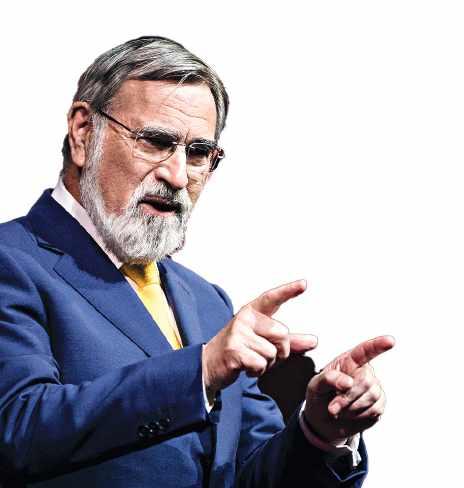

In the late 2010s, the former Chief Rabbi, Lord Sacks, began what was intended to be a flagwrites Daniel Sugarman. It would be a chumash – the five books of the Torah – featuring not only his extant translation but his own extended commentary, a compilation of decades’ worth of wisdom and insights. After Rabbi Sacks’ tragic passing in late 2020, a dedicated team at Koren publishers, including his niece Jessica, lessly to pursue his vision. This, almost half a decade later, has culminated in the publication of the Sacks Koren chumash.
Joanna Benarroch, President

of
The Rabbi Sacks Legacy, described how for the late Chief Rabbi emeritus, “it was really important that we were inspiring the next generation of proud, knowledgeable Jews. Knowledge was everything, as far as he was concerned. And not just Hebrew knowledge, Jewish knowledge, Torah knowledge, but the

“He wanted people to understand they didn’t have to leave that wisdom at the door when learning Torah. I think his commentary shows that Judaism engaged with the world seamlessly, bringing in ethics, morality, science, philosophy and medicine.”
In bringing together the commentary, the Koren team – Benarroch particularly praised Jessica Sacks’ work – had a wealth of writings to choose from. These included Rabbi Sacks’ widely acclaimed Covenant and Conversation series of Torah essays and references to Torah issues in all his bestselling books. The result is a commentary which is unmistakably the work of one of Britain’s most prominent religious and moral thinkers of the last century. This shows, throughout its pages – find another chumash which quotes from BBC Thought for the Day, lectures at Trinity College and House of Lords speeches.
A “for further reading” bibliography at the back enables those who enjoyed particular insights to search out Rabbi Sacks’ original, in-depth articles.
Benarroch, who worked with Rabbi Sacks for almost a quarter century, described how “people used to say [about Rabbi Sacks’ writing] that it’s worth just reading the bibliography so that you get an idea of who he quoted and whom you should be reading next.
“He gave us an education through his writings and the commentary is exactly that. It’s taking you on an amazing journey…at the back of the chumash, you’ll
be able to see where those quotes and those pieces are taken from. If you want to read the whole essay…it tells you where to go and read more.”
Many United Synagogue members are likely to be seeing the chumash in shul soon, thanks to a generous donation by the Morris family. Several thousand copies of the work – which contains an introduction from Chief Rabbi Mirvis – have been gifted to the denomination. But the publishers believe that there will be strong international interest as well.
“His readership is much broader and wider in the in the US than it is even in the UK”, says Benarroch.
“I was packing up our o ce in London this week and looking at the di erent languages that he’s been translated into: Korean, Chinese, Romanian, Hungarian, Czech, and that’s apart from French, Spanish, German, Italian, Hebrew” Benarroch says.
“It’s quite phenomenal how his reach is expanding; we get requests on a daily basis for translation rights.”
There will be launch events held in both the US and the UK in the coming months.
“Around the world, people would stop him...and say, ‘we learn with you every week. You’re at our Shabbat table, you’re with us’”, Benarroch says.
“So this is bringing them his drashot – commentaries – in a way that can take them through the parsha, in shul, in school, at home – on the journey Rabbi Sacks wanted to bring to their to their table, to their family.”

One of the community’s most popular preRosh Hashanah events returns next Tuesday, bigger than ever, writes Michelle Rosenberg.
The Chai Cancer Care Gift Fair, held at the charity’s north London HQ, has grown from a dozen stalls when it launched 13 years ago to around 40 this year. Vendors will o er everything from fashion and chinaware to honey cakes and chocolates.
Co-chair Debra Zender said the fair is not just a fundraiser but “a really wonderful way of getting people into the Chai building. It’s got a very warm, friendly atmosphere”.
The growth has prompted the addition of a marquee to house new stallholders, while some companies now compete for entire rooms. All proceeds will support Chai’s services for cancer patients and their families, including counselling, complementary therapies and practical assistance.
Zender added: “We now have shop owners taking pop up stalls and several companies that know it’s such a successful day that they want to be part of it, and they take a room.”
Among the highlights are “gifts for everyone”, from dried fruits and candles to fresh flowers for the yomim tovim, 300 of “the best honey cakes” donated by caterer Tony Page, exclusive Chai-branded tableware sourced worldwide, and a wide range of platters, bowls, salad servers and chocolates. “The Chai team curate a beautiful selection of gifts for the
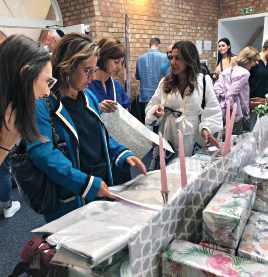
home, ranging from 10 pounds all the way up to 60 pounds,” Zender said.
She described the event as “the most unique gift sale that there is. It’s very slick. It’s very professional. We also have got a café that will be run by (caterer) Ben Tenenblat, serving lovely brunch style food from 12pm and bakers OH Brown Bear o ering co ees and frappuccinos. You can actually spend a day here, if you want to. It’s a proper shopping experience.”
More information about Chai Cancer Care’s Gift Fair at yestolife.org.uk
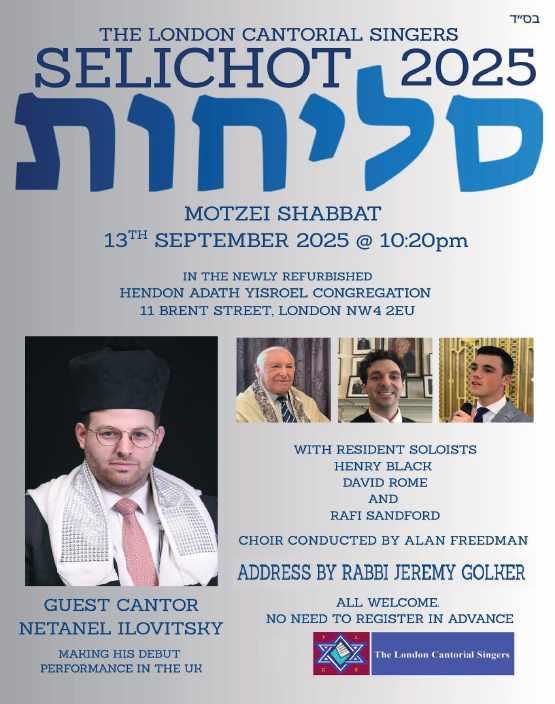



Tuesday 16th September 2025 9am-7pm | £5 entry












Israel’s High Court of Justice has ruled that Israeli prisons are failing to give security prisoners adequate amounts of food, calling on the country’s incarceration service to ensure such prisoners receive enough food “to enable a basic existence”.
The case, which was brought by the Association for Civil Rights in Israel (ACRI), and Gisha NGOs, was a direct challenge to policies instituted by the
far right Security Minister, Itamar Ben Gvir.
Writing for the majority, Judge Daphne Barak Erez said the information provided both by the NGOs and the Israeli Prison Service itself “raised real doubts” about the amount and quality of food being given to prisoners.
Ben Gvir has openly boasted of his policy, writing in July 2024: “Since I assumed the role of minister for national security, one of
my top priorities has been to worsen the conditions for terrorists in prisons and to reduce their privileges to the bare minimum required by law.
“This is what I promised my voters and the people of Israel during the elections when I announced I would demand this role.”
Ben Gvir accused the Shin Bet, under the leadership of its former chief, Ronen Bar, of having opposed his attempts, saying they had been “repeat-

edly convincing the Prime Minister that worsening the terrorists’ conditions would lead to escalation, an explosion, or set the Middle East ablaze.” Ben Gvir said that
7 October proved that such attacks would happen no matter how good the conditions were in Israeli jails.
Ben Gvir has bitterly criticised the High Court’s decision.
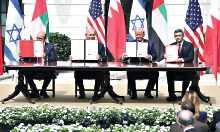
The United Arab Emirates has warned Israel that annexation of the West Bank would effectively destroy the Abraham Accords, with a senior UAE diplomat describing annexation as “a red line” that “would end the vision of regional integration.”
In a Times of Israel interview, Emirati special envoy Lana Nus-
seibeh said: “when Hamas tried to derail the Abraham Accords vision of regional integration with the 7 October terror attacks, we were firm in our response”, but that “the Abraham Accords’ tenets of prosperity, coexistence, tolerance, integration and stability have never looked more under threat than today.”

Members of Israel’s governing coalition have been calljng for annexation of a large portion of the West Bank.
“For every Arab capital you talk to, the idea of regional integration is still a possibility, but annexation to satisfy some of the radical extremist elements in Israel is going to take that off the table,” Nusseibeh said.
A judge has ruled the Trump administration’s freeze on more than $2.6billion in federal funding to Harvard University over claims of antisemitism is illegal.
In her ruling, U.S. District Judge Allison Burroughs said: “a review of the administrative record makes it difficult to conclude anything other than that Defendants used antisemitism as a smokescreen for a targeted, ideologically-motivated assault.”
The decision comes after the Trump administration found Harvard violated the civil rights of its Jewish and Israeli students in its response to alleged antisemitism on campus.
Burroughs previously questioned ties between the federal government’s campaign against antisemitism and funding cuts, which have led to multi-million dollar settlements with other top universities including Columbia and Brown.
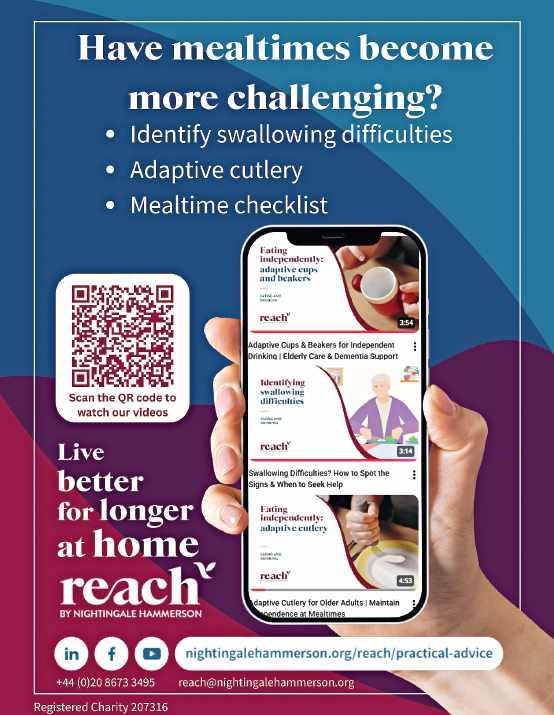



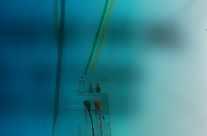
With thousands of trauma patients requiring ongoing rehabilitation at Hadassah Hospital, and over 1 million Israelis expected to need urgent mental health care, expanding our capacity to provide these services is now a critical priority. Your gift will help us: Open new outpatient areas for rehabilitation.
Expand mental health support for children, adolescents and adults.
Provide holistic care so patients not only survive – but thrive.
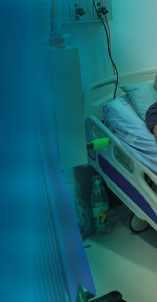


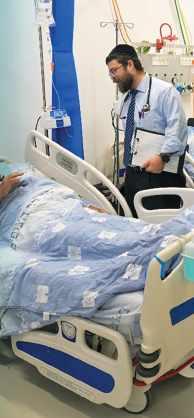
Join our Global Movement of Healing and Hope –Donate Today to Help Hadassah
T: 020 8202 2860 E: uk.office@hadassah.org.uk W: www.hadassahuk.org Hadassah UK Proudly Supports Hadassah Hospital



The strength and determination of Israel forge a future full of promise. This Rosh Hashanah, your support for Israel is more important than ever, as we look toward a year of peace, joy & renewal for Israel and all who stand with her.









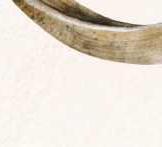


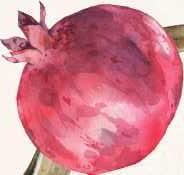





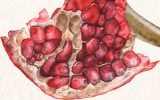






As an Israeli diplomat and negotiator, Daniel Taub has experienced far more than his fair share of arguments, writes Daniel Sugarman. But his new book, Beyond Dispute, is not about shunning disagreements but how to disagree constructively. The tagline for his north-west London event was:
“Don’t argue less... argue better!”
That’s fortunate, since as Moses found in the wilderness, arguing less has never really been an option. But Taub, former Israeli ambassador to the UK, reckons it was later in history that learning to argue constructively was vital to our survival.
At a joint JW3-Jewish News event chaired by TV star and professional barrister Rob Rinder, Taub told the audience Biblical disagrements were “by and large resolved by a bolt of lightning or the ground opening up... But 2,000 years ago the Jewish world went through an incredible crisis... that social crisis which gave rise to a new form of Judaism and with it a new thinking about argument, is
very similar to the social crisis a lot of Western societies are going through today.
“The destruction of the Temple, the exile, the loss of prophecy and loss of the priesthood, meant in practice we had no shared social centres, common trust in authority or common sources of information.”
The rabbis “reinvented Judaism and the notion of argument. They said, ‘No longer is truth going to be something that comes down from above... it’s going to become a collaborative exercise’.”
That format, Taub describes, is enshrined in the Talmud.
“If you ask a kid what they’ve been studying in Talmud, they will reply with something called Shakla V’tarya, the to and fro of the argument… This rabbi says this, this one counters with this, this one brings this proof. You can ask the CEO of a Fortune 500 company how a board decision was arrived at and to summarise the arguments; it would be very difficult for him, because we tend to think
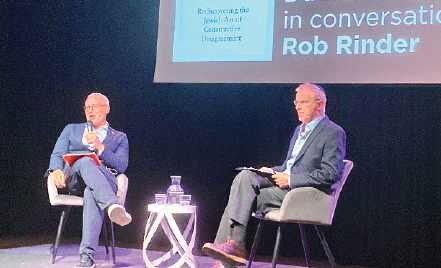
in binary bottom line terms. We are losing an enormous amount of the value of that debate.”
Taub’s book, praised by Jonathan Freedland as “erudite, insightful and unexpectedly hopeful”, is also about arguments external to Judaism. His own experience as a negotiator opposite Palestinians in one of the world’s major geopolitical conflicts, brings an

extra level of complexity to the book.
“In difficult conversations, I might say – can you give yourself a percentage evaluation of how much you think that position is right”, he says.
“Very rarely will people give it 100%. They might be in the high 90s, but the moment they recognise there is space between them and their position, that’s where it narrows the space
between you and the other thing.”
Few topics cause bigger arguments than Israel. Taub says he tells people “not to try and be defence attorneys for Israel, but to act as character witnesses”; that they should find the element of Israeli society which speaks most to them and build connections to it. Prior to 7 October, Israel itself was divided by attempts at judicial overhaul – the issue has receded since, but hasn’t disappeared.
But Taub describes how “a bunch of kids who have served over the last two years, when they come back from the front there is this kind of moment of hesitation before they re-enter Israeli society, where these arguments don’t make sense.
“They have just come from a place with people of different religious, ethnic and political backgrounds, and they were in foxholes together, and they were in tanks together.
“The challenge they place in front of others is, where are the foxholes and tanks in Israeli society, where we can conduct those conversations.”



JOSH GLANCY
ASSOCIATE EDITOR AT THE SUNDAY TIMES
In December 1915, during one of the most sodden and dismal winters ever recorded on these well-washed isles, the poet Edward Thomas found himself at Hare Hall in Romford, training with the Artists Regiment of the British Army.
Suspicious of the jingoism that greeted the outbreak of war in 1914, Thomas had initially wavered over whether to join up. He needed to find his own moral rationale for fighting. In time, Thomas found this rationale in England itself. In its hedgerows and spinneys, in Adlestrop station on a fierce summer’s day and in flowers left thick at nightfall in the wood. Thomas decided that he could fight for his homeland even though he did not despise its enemies.
While camped at Hare Hall, an elegant Palladian mansion muddied by pounding storms and the yomp of military parade, Thomas somehow found the time to write my favourite of his poems: This is No Case of Petty Right or Wrong, which explored his reasons for fighting. He wrote:
“But with the best and meanest Englishmen I am one in crying, God save England, lest We lose what never slaves and cattle blessed. The ages made her that made us from dust: She is all we know and live by, and we trust She is good and must endure, loving her so: And as we love ourselves we hate our foe.”
“The ages made her, that made us from dust”. This is the line that lingers for me. The idea that England was shaped over eternity and then shaped its people in turn. There is something distinct in this land and its inhab-
itants that is worth fighting and dying for.
I thought of Edward Thomas recently when I read The University of Leicester’s Unpacking Expressions of Hostility report into racism in the countryside. The report criticises the “silences” and “stares” directed at ethnic minority visitors to rural areas. It laments the lack of halal food available in rural areas and suggests that “welcoming minoritised individuals into the countryside means more than tolerance; it requires thoughtful adaptation, sustained inclusion e orts and a willingness to change”. (Somewhere in the small print I’m told the report also makes a reference to kosher food, though I couldn’t find it.)
To me this prescription seems entirely inverted. For starters, rural suspicion towards outsiders, white, brown or black, is as old as the hills themselves. It is a natural product of living in smaller, more isolated communities and hewing to older customs. Rural life is inherently conservative.
But also, as ethnic minorities who have chosen to make this country our home, it is not England that should adapt for us but we who should adapt for England. As Edward Thomas well understood, this country has an essence, a character and an immemorial history which is best preserved in its plunging valleys and crumbling graveyards and gnarled woodlands.
This is where I introduce some caveats. Racism anywhere is deplorable and I’ve no doubt there are some bigoted old bumpkins out in the shires who have been unpleasant to visitors. And of course, immigrants change their new countries too, often positively. Think where this country would be if the Jews hadn’t brought them cholent, for example.
But it’s also worth remembering why most of us Jews came in the first place. For better opportunities, of course, but also because the Cossacks and their ilk


kept trying to slaughter us. Because Jews across eastern Europe were immiserated, discriminated against and excluded from advancement. Because they weren’t safe and they hoped they might be here.
“What is most astonishing to an American is not so much the liberty the English enjoy as the tranquility with which they enjoy it,” wrote the French philosopher (and revolutionary veteran) Alexis de Tocqueville. My ancestors shlepped over from Poland and Russia because they wanted a piece of that tranquility for themselves and their children. And they were right to do so. Most of those who stayed ended up being incinerated.
I don’t wish to overdo my dewy-eyed patriotism. This country can be violent and domineering and bigoted, just ask the Kenyans or the Indians. But England is also a place of mild climate and mild government. It is a country that has proven itself persistently allergic to political extremism and political violence. It abjured communism and drained its own life force almost entirely in the battle against Nazism. It is not a place where Jews are murdered or excluded, but accepted or at least tolerated.
This historically distinct character, and it is distinct, is woven inextricably into the land and culture of the English countryside. It is not the progressives of London or Brighton or Manchester who best embody and maintain this distinctiveness, but the
Thank you for helping to make Jewish News the leading source of news and opinion for the UK Jewish community. Unlike other Jewish media, we do not charge for content. That won’t change. Because we are charity-owned and free, we rely on advertising to cover our costs. This vital lifeline, which has dropped in recent years, has fallen further due to coronavirus.
Today we’re asking for your invaluable help to continue putting our community first in everything we do. For as little as £5 a month you can help sustain the vital work we do in celebrating and standing up for Jewish life in Britain.
Jewish News holds our community together and keeps us connected. Like a synagogue, it’s where people turn to feel part of something bigger. It also proudly shows the rest of Britain the vibrancy and rich culture of modern Jewish life.
You can make a quick and easy one-off or monthly contribution of £5, £10, £20 or any other sum you’re comfortable with. 100% of your donation will help us continue celebrating our community, in all its dynamic diversity.
Support Jewish News by visiting our donor page at jewishnews.co.uk
people and places of deep England. The village halls and churchyards across the land where fading Ukrainian flags still fly, fluttering in defiance of feckless injustice.
For the same reasons my ancestors came to this country, I want those people and places to be preserved, not lectured about how they must embark on “adaptation” and “sustained inclusion efforts”. I want them to stay as they are.
Last summer, I went to the Lake District with my sister and her children, who are all strictly orthodox. We rented a cottage near Grasmere and filled it with a frankly staggering volume of kosher food. We made chicken soup and challah and lit Shabbat candles and my nieces and nephews wandered through villages and valleys in their kippot and long skirts.
It was a splendid week. Would I have liked there to be a kosher cafe or bagel bakery nearby? I mean, sure, it would have been convenient. But we have those things at home. Instead we gloried in the eternal landscape of pikes and fells that inspired William Wordsworth, Arthur Ransome and Beatrix Potter. “Not even Hitler can damage the fells,” Potter once wrote.
Well quite.
Edward Thomas went to war for England and in 1917 he died for it too, in the mud and gore of Arras. He died not for hatred but for love, because he felt there was something good about his country and its people that must endure. “I could not let others be killed without a word from me,” he wrote.
In recent years I find myself wondering occasionally if what’s good and enduring about this country is changing. When I read that one in five British people are apparently now antisemitic or watch faeces being smeared upon the door of a shul in Golders Green, I wonder if the land that Thomas died for is losing its temperance. But whenever I turn o my screens and leave the city, when I walk through England’s lanes and listen to its people, I tend to find that it is not.
Not yet at least.
















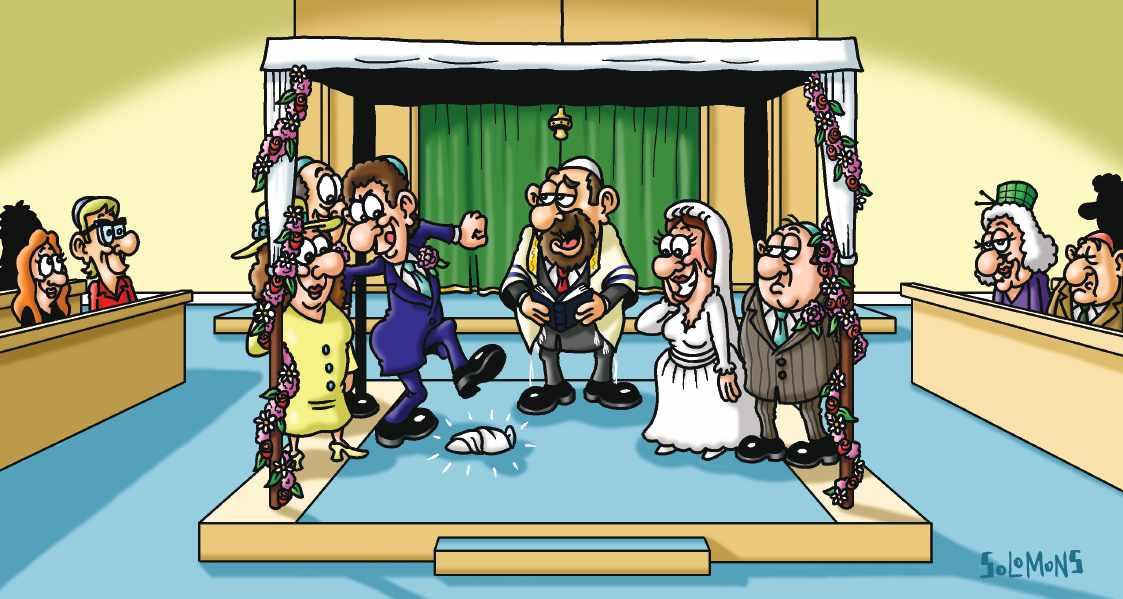





























Thursday 18 September, 7.30pm

jw3.org.uk/patrikarakos



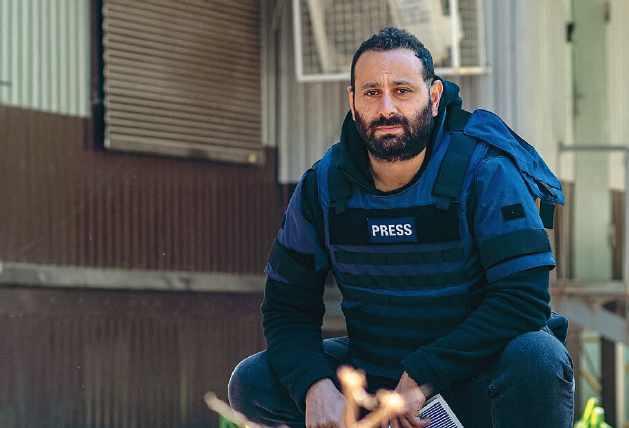
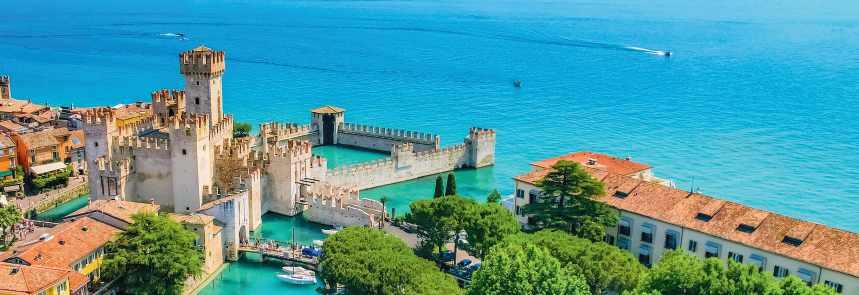

David has reported from many of the key conflict zones of our age, including Ukraine, Israel and Syria In this exclusive event, hear from The Mail’s Special Correspondent about his career on the front lines of an increasingly dangerous world. Celebrate Sukkot on the shores of Lake Garda at Hotel Villa Maria, Desenzano.




The hotel will be specially prepared for Sukkot, including a stunning Sukkah, Glatt Kosher meals, onsite Synagogue, Chazanim and much more
Hechsher is strictly Mehadrin at the highest standards under the supervision of Rabbi Borenstein, Senior Chabad Rabbi in Italy
Family Room Glatt Kosher Sukkah




As the final solemn note of Anatevka rang out through the auditorium of the Norwich Theatre Royal, a teary audience leapt to its feet.
Immediately I turned to my Israeli friend who, to my utter despair, had never seen Fiddler on the Roof prior to meeting me, to gauge his reaction.
‘So, what did you think?’ I asked eagerly, hoping to have emotionally connected him to what I consider to be an essential pillar of the Ashkenazi Jewish experience, even more fundamental than eating sushi at barmitzvah receptions or spending hours guessing which Hollywood celebrities are MOT [Members of the Tribe].
‘It made me feel cringe’ he bluntly admitted, showing none of that selfconscious British hesitation. I am not exaggerating when I say this felt like a sucker punch to the core of what it meant to be Jewish in Britain.
‘Why do British people only like Jewish people who are weak and feeble?’ he
continued. This dissonance in our perception of this musical is a phenomenon I am naming as the ‘Fiddler on the Roof complex’.
For him (an Israeli) Fiddler was a relic of some tragic, distant past. For me (a diaspora Jew) it is a deeply familiar reflection of my ongoing Jewish reality.
In England, during this sadly all-too familiar unpleasant period in the Jewish story, scared British Jews are tucking in their Magen David necklaces, covering their kippot with baseball caps and whispering the word ‘Israel’ in public spaces, lest they be overheard and screamed at.
But, as my Israeli companion pointed out, this reality and attitude is not true for second and third generation Israelis – known as Sabras (due to their tough, prickly exterior).
Israelis only know life as being the majority people in their homeland.
In Israel there are never whispered, half-joking conversations about which of your non-Jewish friends would hide you in their attic in the event of a Holocaust. Or o -colour comments from loved ones about always having shekels in your pocket and a bag packed and waiting just in case you need












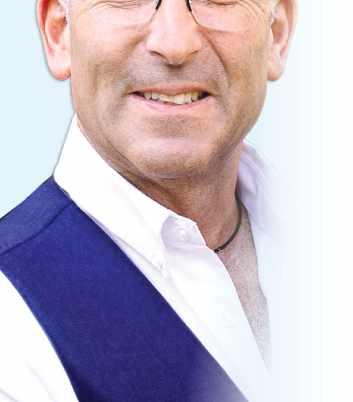
to flee in the middle of the night. More than that, Israelis have spent the last 77 years crafting their own new Jewish story – one diaspora Jews struggle to relate to.
Their story is shaped by fluency in the Hebrew language – giving them much easier access to our story, our songs and our daily prayer.
It is also a reality marred by nearconstant war, devastating terror attacks and mandatory military service.
Living in the diaspora, to many Israelis, is a thing of the past. Those that remain here are considered failures of the Zionist project. But this ignores a fundamental fact. Zionism emerged from us, the diaspora.
Israel only exists because the Jews of Iraq, Ethiopia, Russia and Spain were careful custodians of the Jewish tradition, keeping our shared language alive in their pockets for more than 2,000 years.
From the optimistic, seemingly unreal promise of ‘l’shanah haba b’Yerushalim’ uttered at the Pesach seder table by diaspora Jews (twice a year), emerged Israel and Israelis (who enjoy only one Seder night). Diaspora grit is not something to be
pitied. And our historic and continued contribution to Zionism should not be overlooked. As Israel turns inwards, the chasm between Israeli Jews and their diaspora cousins is sadly widening.
But Israel ignores the diaspora — its own canary in the coalmine —at its peril.
Increasingly, the world views Israel as a pariah state. Diaspora Jews, with our feet planted in two worlds, feel this shift in public perception most acutely.
For millennia, Jews in the diaspora have learned to live shoulder-to-shoulder with their non-Jewish neighbours.
Since 1948, living in the diaspora has not been an accident of history but a choice—one we embrace because engagement with the world is a valuable thing. With our very existence, we assert that Jewish flourishing can coexist with global belonging.
Our legacy founding Zionism gives us both the right and the responsibility to remind Israel that Jewish destiny cannot thrive in isolation.
If only Israelis would start seeing themselves in our thriving story and start listening to the diaspora once more.

DR. STEPHEN SMITH CO-FOUNDER, THE AEGIS TRUST FOR THE PREVENTION OF CRIMES AGAINST HUMANITY & GENOCIDE
The International Association of Genocide Scholars (IAGS) recently passed a resolution declaring Israel guilty of genocide in Gaza. As someone who has dedicated decades to genocide prevention, education, and scholarship – co-founding the Aegis Trust, directing the USC Shoah Foundation, and serving as UNESCO chair on genocide education – I find this resolution not merely flawed, but a dangerous abandonment of scholarly rigor that undermines the very field it claims to represent, legitimising and emboldening a known genocidal entity. Hamas. Organisations that carry the weight of “genocide scholars” in their name bear an extraordinary responsibility. The public rightfully expects such groups to uphold the highest standards of academic integrity, legal precision, and analytical rigor.
The IAGS resolution fails catastrophically on all counts, revealing an organisation that has transformed from a scholarly body into a political advocacy group masquerading as an academic institution.
The most fundamental problem is jurisdictional: IAGS has no authority to adjudicate genocide charges. This would be akin to a criminology association declaring someone guilty of first-degree murder, pre-trial. Understanding the nature of crime does not grant jurisdiction to render legal opinions. Yet IAGS has appointed itself judge and jury, when there are existing courts of law – the International Criminal Court which prosecutes individuals, and the International Court of Justice, which arbitrates disputes between countries. Whether you think them fair arbiters or not, they are the bodies that provide jurisdiction and due process in such matters, not the IAGS.
Even if its vote did have weight, only a minority of the IAGS total membership voted. More troubling still is that IAGS membership requires only a credit card to join, rather than recognised academic credentials. This predisposes it to being swayed by member interests rather than academic rigor.
“My
life changed overnight. After having my leg amputated, Jewish Blind & Disabled offered me the housing and support I needed to retain my independence.” Geoff, JBD Tenant
Jewish Blind & Disabled offers housing and support for adults who have physical disabilities or vision impairments.

Many members lack advanced degrees in relevant fields, calling into question the association’s claim to scholarly authority.
The resolution’s substantive failures are equally damning. It relies uncritically on Hamas-provided casualty figures that make no d Israeli hostages in flagrant violation of international law, maintains its genocidal ideology, and refuses to surrender.
Under such conditions, Israel is acting in self-defense under international law provisions until its enemy is defeated or surrenders.
The Palestinian people have long su ered from their own leadership’s intransigence, Arab nations’ abdication of responsibility, and successive Israeli governments’ inflexibility. But honest scholarship demands acknowledging complexity, not simplistic blame assignment.
As a scholar of genocide, I am most interested in its prevention, not the titfor-tat among educated elites. I stand by international law where it applies based on evidence, jurisdiction, and due process. If Israeli politicians or members of its armed forces have broken international humanitarian law, there should be due process to
convict these individuals. The same applies to Hamas and those who subscribe to its well-documented genocidal intent.
By legitimising Hamas’s narrative and providing academic cover for their actions, the IAGS resolution emboldens Hamas to continue its fight. It tells Hamas that their strategy of using civilian casualties as propaganda tools has succeeded in swaying international opinion, incentivising them to prolong the conflict knowing they have gained sympathetic voices in the academic community.
Genocide is humanity’s gravest crime. When it occurs, it must be stopped by all means necessary. As well meaning as advocates may feel, politicising genocide does not protect civilians. It dilutes the term’s legal power, and does nothing to alleviate the su ering of those still caught in its terrible web. The IAGS resolution represents everything wrong with contemporary academic activism: political posturing masquerading as scholarship and moral preening substituting for rigorous analysis. It is time for serious scholars to reclaim genocide prevention and scholarship from those who would weaponise academic credentials for political ends.


DR JEREMY HAVARDI JOURNALIST & AUTHOR
The International Association of Genocide Scholars (IAGS) has passed a resolution stating that “Israel’s policies and actions in Gaza meet the legal definition of genocide”.
Unsurprisingly, world media spread the claim, with coverage by the BBC, the Guardian and others. Hamas itself lauded the IAGS’s ‘prestigious scholarly stance’.
The truth is very di erent. Almost three quarters of IAGS members did not vote on the resolution, rendering nonsensical the headline grabbing claim that “86% of the world’s leading genocide scholars believe that Israel is committing genocide”.
The IAGS appears to have pushed through this resolution without its customary measure of a town hall-style debate. Moreover, visit the IAGS website and you will find that membership requires form filling and a credit card.
The IAGS even admits many of its members are not academics or scholars but ‘sociologists’
and ‘artists’. Meanwhile, a compliant western media regurgitated its nonsense.
The claim of genocide is easily disproved. It is likely Gaza’s population has actually increased during this period.
According to the Palestinian Central Bureau of Statistics, there are 160,000 fewer Palestinians in Gaza than before the war. Assuming this is true, we can deduct the roughly 100,000 Palestinians who fled to Egypt after 7 October.
If Hamas figures are to be believed – there are many reasons to doubt that - approximately 60,000 Palestinians, at least one third combatants, have been killed since 7 October 2023.
According to Save the Children, at the start of April 2025, about 130 Gazan babies were born daily. That extrapolates to nearly 50,000 annually, close to 90,000 since the war began.
Taken together, there has been an increase in Gaza’s population, di erent to the population decline one sees in all major cases of genocide.
That is not to deny the immense suffering of Gazans. It is of course impossible to assess the consequences of this war without understanding it as the inevitable outcome of a brutal urban conflict in which

Hamas has turned the civilian population into human shields.
Yet, those who parade the genocide libel ignore the role of Hamas altogether. They decontextualise the su ering, depicting Israel as a nation intent on spilling civilian blood.
Hamas’s propagandists have managed to make the group ‘Schrodinger’s terrorists’, present or not depending on who is looking.
Additionally, to prove genocide you need dolus specialis, a ‘special intent’ to commit genocide against a designated group.
Some argue there were expressions of genocidal intent from figures in Israel. Sadly, this is true. For example, Amichai Eliyahu, the Heritage minister, spoke of the possibility of using atomic weapons on Gaza, and was later suspended from the government.
Though such remarks were abhorrent, none were made by people central to Israel’s decision making from 7 October onwards. Those running the war made clear repeatedly the aim was to destroy Hamas and remove it from Gaza. This was not a war against civilians, though they would su er enormously as the war progressed.
Hence, Israel took measures to protect the
population. The IDF made direct phone calls, sent text messages and pre-recorded voicemails, telling Gazans to leave combat areas.
Israel’s air force dropped leaflets telling citizens to evacuate places about to be bombed. They implemented daily pauses, including for polio vaccination, and established humanitarian corridors so Gazans could flee active war zones. No genocidal state would behave this way.
There are legitimate criticisms of the war. Absence of a post-war strategy, problems in aid distribution that have beset the GHF, the ban on media access and extremist rhetoric from Netanyahu’s coalition partners are all failures that have sullied the government. There must be full accountability for all soldiers accused of war crimes and other criminality.
But the claim of genocide is a defamatory and baseless slur, a lie that refuses to die. It is a strategic weapon hurled at Israel to turn public opinion against it. Above all, it is a malevolent defamation befitting the temper of a modern world which is desperate to assuage its guilt for past crimes against the Jews.
For shame.





















DANIEL SUGARMAN DEPUTY EDITOR, JEWISH NEWS
Last week, anti-Israel activists targeted the Vuelta a Espana, Spain’s premier cycling race.
One of its stages had to be cut short due to the protestors, who are there because one of the teams, IsraelPremier Tech, is owned by an IsraeliCanadian businessman.
But the real story here is not the now ubiquitous anti-Israel protests, even as other countries somehow get a free pass (the UAE Team Emirates cycling team is not protested, despite considerable evidence of UAE involvement with genocidal acts taking place in Sudan).
No, the issue worth looking at most closely here is the reaction of some other teams taking part. Because there are reports that several of them are pushing for the Israellinked team to withdraw, and the reason – or the excuse – being given is “security risks”.
Those two words are becoming wearisomely familiar to both Israelis and Jews in
general – wearisome not because security is unimportant, but because the words are used as a cudgel. To put it bluntly, Jews - and Israelis in particular - know more about “security risks” than most.
In the diaspora, our schools and community centres are surrounded by high fences and guards. Our synagogues often have volunteer rotas of congregants who interrupt prayers to take turns standing watch. In Israel, all new buildings have shelters and everyone knows what to do when sirens sound signalling incoming rockets or missiles. So unless a venue here is literally receiving bomb threats or something equally disturbing, citing “security risks” tends to see a raising of sceptical eyebrows.
In the last few years, a new phenomenon has emerged – the weaponisation of safety. An organisation, or a location, decides to shut its doors to a specific group of people, with the given reason being safety concerns.
Not fear of the safety of those people being excluded, you understand – but rather the perceived worry about discomfort experienced by those others present who might have to deal with a situation in which that organisation or
venue is picketed by an angry mob. Far easier to just ensure that people connected, however tenuously, to the target of the mob’s ire are disinvited – or simply not invited at all.
Jews and Israelis are not the only targets of this weaponisation of safety – but since 7 October we have come to know it all too well.
In November 2023, a Jewish culture exhibition was cancelled by a London council over “personal safety” fears. Last year, a show by a Jewish Israeli singer was cancelled by a London venue, due to “security concerns surrounding non-participants of the event”.
In July, British Jewish comedians were told at short notice that the Edinburgh Fringe venue which had previously welcomed them would not host them this year, with the pair saying “safety concerns” had been given as the reason. In July, an Israeli DJ was told at short notice he could not perform at Belgium’s Tomorrowland Festival. The reason? “Security concerns”.
The insidious nature of this excuse is obvious. Few institutions want to come right out and say they don’t want Israelis or ‘Zionists’ to attend their events. Apart from making them look like howling bigots, there’s also a risk such
To get the best value from your private medical insurance, you should speak to an expert who is qualified to advise you on the right policy for you, and recommend the providers who offer the most competitive premiums.
This advice covers individual, family and company policies, and is always FREE.
As an independent health insurance expert, I work with the healthcare insurers to provide you with the appropriate and most affordable level of cover. So whether you have an existing policy or not, let’s have a chat.

actions might breach equality laws. But safety? No venue or organisation wants to look like it’s shirking on analysing security risks. By using that excuse, a venue can instead present itself as conscientious rather than prejudiced.
Of course, you can reach your own conclusions as to the true reason for a cancellation. Did the venue or organisation approach the Jewish or Israeli individuals in question and say: “Look, we know there are likely to be protests, meaning extra security requirements. Let’s discuss how we can work together to provide the extra security to make it work”? Or did they just abruptly cancel the event, with “security concerns” given as the reason? Find the answer to that and you’ll most likely have found your answer as to the real motivation.
Venues and organisations will no doubt continue to use this magic two-word formula to try and avoid being the targets of mob actions. But that’s not how mobs work – give into them once, and they’ll inevitably be back for more. In the meantime, realise that Israelis, and most Jews, know what your “security concerns” mantra really means – that you’re throwing them under the bus in pursuit of an easier life.













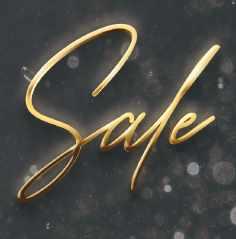
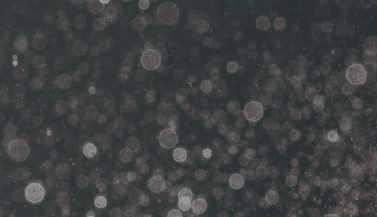


















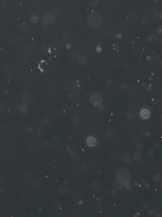


































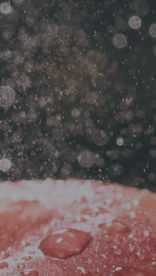









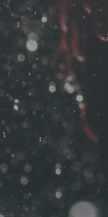















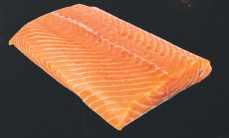















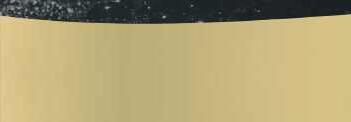













































Stanmore & Canons Park
Synagogue welcomed more than 50 children to its first two-day summer camp. They enjoyed adventure golf, a treasure hunt, picnic lunch, a professional graffiti T-shirt workshop, a ‘supermarket sweep’ challenge run at Sainsbury’s with charity GIFT, outdoor games, pizza and chips and more. The shul said it was an amazing chance for children from Stanmore and beyond to meet and experience a taster of the events and opportunities it provides.
Pinner Synagogue held its weekly Chat and Share Cafe to raise money for Macmillan. More than 60 people attended, raising over £450 with a raffle. They also celebrated Hazel Gallick’s 100th birthday! Mazeltov to both the Pinner community and Hazel.
Registered blind, and living with almost no sight, Neve Abgeller stepped up to the bimah with her husband Martin, alongside Rabbi Paul Freedman, Senior Rabbi at Radlett Reform, to read from the Torah to mark their ‘b’mitzvah moment’, following their recent conversion. Neve said: “I’m proud to be Jewish because our tradition turns hope into responsibility. When we trust one another, faith becomes muscle; together we lift what none of us could carry alone.”
One hundred local children enjoyed a two-week camp organised by Bushey Chabad Jewish Community Centre at Bushey’s Grange Academy campus. It was packed with activities and trips including kayaking, pizza making, survival skills, Gulliver’s theme park, wood working, baking and clay crafting. Now in its fifth year, the children at Camp JUDA Bushey are from all backgrounds and levels of observance. Beverly, whose child attended, said: “My daughter loved every moment.”
The team at Jewish Care’s Vi & John Rubens House care home pulled out all the stops to bring a wedding ceremony for Hayden Steinberg and new bride Jemma to his grandfather, Wallace, who couldn’t make it to the actual big day. Staff organised a chuppah, complete with balloons, flowers, food and residents dressed in their finest. Wallace said, “I found it very moving. Everything went very well, and the staff were very kind. There was a first-class atmosphere. Family means a lot, and I’m pleased that I live in a Jewish home. I think that I’m very fortunate.”






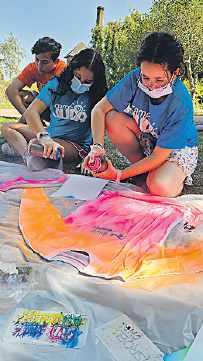
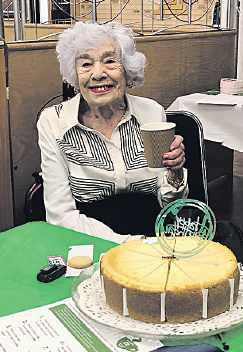
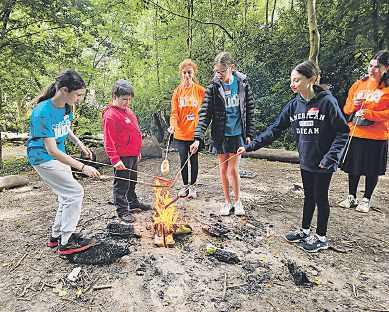

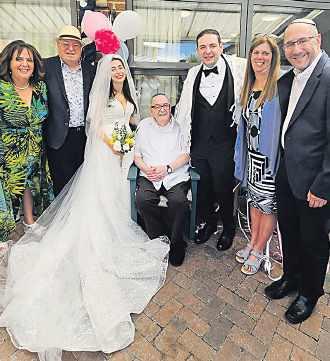
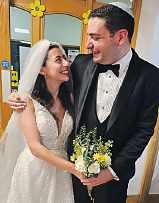
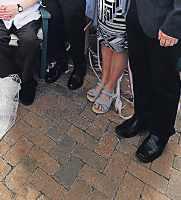


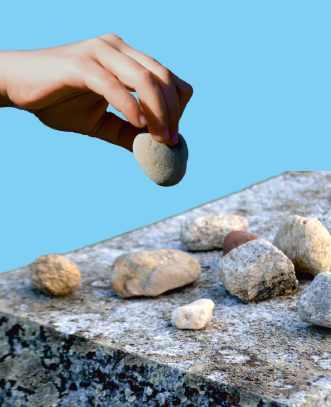





























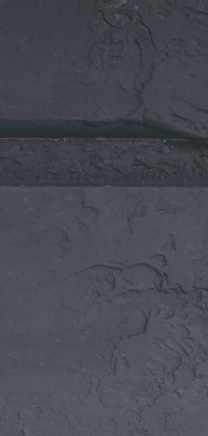












































































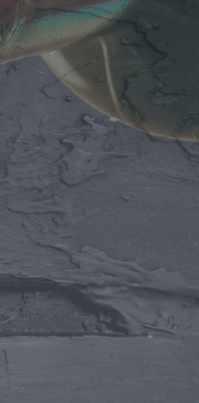


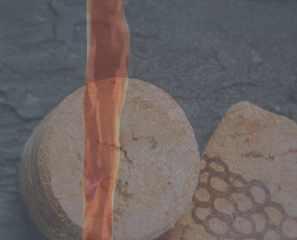


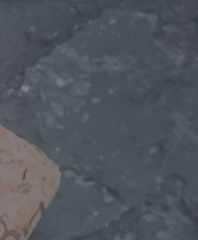





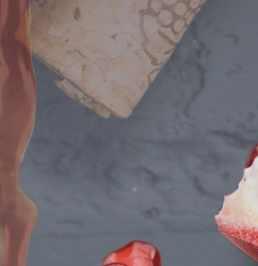



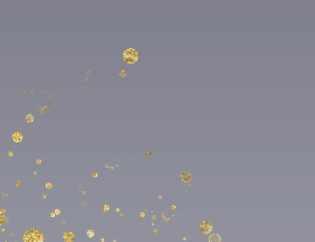










Jonathan Freedland’s new book is a rollercoaster real-life thriller about German non-Jewish resistance. He spoke to Jenni Frazer
The writer and broadcaster
Jonathan Freedland was, he says, “familiar with the world” of his previous bestselling non-fiction book, The Escape Artist – the meticulously told story of Rudolf Vrba and his successful 1944 escape from Auschwitz, together with fellow inmate Fred Wetzler.
But The Escape Artist was published in 2022 and we are actually here to talk about Freedland’s newest offering, The Traitors Circle , a dense re-telling of a little-known aspect of the Second World War – resistance against the Nazis by a small group of non-Jewish members of German high society, and their ultimate betrayal.
Many people may be familiar with the dramatic – and failed – attempt to assassinate Hitler by high-ranking army members. But The Traitors Circle is not that book. Instead, Freedland stumbled over their story after the brutal, dark research for The Escape Artist.
It made him determined that his next book would be, if possible, some sort of “antidote” to the “abyss” of the Vrba book, in which he recreated the hell of Auschwitz. And he found a speech by Heinrich Himmler, one of the architects of the Holocaust, boasting about how the Gestapo had captured enemies of the Reich, and naming several of them – Otto Kiep, Arthur Zarden, Hanna Solf.
“I did that thing of clicking and clicking again – and suddenly there was this tea party.” It was a surreal moment in the course of the war, in which a number of people, all civilians, met for afternoon tea in Berlin.
All were opposed to Hitler in various ways: some were unwise enough to express their opposition, vocally, at this tea party, while others were more guarded. And one person present at the event busily took note of what was said, and what was not said, and betrayed them to his Nazi “handler”.
Freedland was attracted to the story for several reasons, not least because the dramatis personae – two countesses, a diplomat, an ambassador’s widow, among others – struck him as having many of the elements of an Agatha Christie thriller. “All these elegant people… I thought initially, I could do this as a sort of drawing-room

whodunnit.” In fact he re-read Christie’s classic And Then There Were None as part of his preparations.
Having decided to bring back to life this group of largely unsung resisters, Freedland was astonished at how much material there was. Every line in the book, he says, is sourced from memoirs and biographies or diaries or archives – so although he brings a novelist’s skill to describing how the tea-party participants acted, he also displays a journalist’s commitment to providing chapter and verse to make his case.
The levels of resistance described in the book range from the small and defiant to the near-suicidal. There is Lagi Solf, who always made sure that she carried two bags of grocery shopping with her, so that she could not return a “Heil Hitler” salute, because her hands were full.
Or there was the previously mentioned
Otto Kiep, who, before the war, was Germany’s consul-general in New York. In 1933, a full decade before the fateful tea party, Kiep had to decide whether or not to attend a fundraising dinner.
With hindsight, it is almost unimaginable to think of a German diplomat being not merely invited but warmly welcomed, at an event held in honour of Albert Einstein and jointly hosted by the American friends of the Hebrew University and the Jewish Telegraphic Agency (JTA). Not only that, but Kiep made a speech at the dinner. He knew, says Freedland, that his attendance would be the end of his diplomatic career. So it proved.
Or there were the heroic actions of Countess Maria von Maltzen, who was born into an aristocratic Prussian family and became a veterinarian after being rejected by her Nazi brother. She took
part in an operation called the Black Swimmers, helping Jews to escape to Switzerland in dangerous ventures which took place at night. She also had a Jewish lover, Hans Hirschel, who she successfully protected from the Gestapo on numerous occasions by hiding him inside a couch in her apartment.
After the war, the writer Leonard Gross interviewed the countess and Hirschel, and his children allowed Freedland to hear the cassettes of the interview in which they describe their experiences.
“I was drawn to to these gestures of defiance – from the small, to the huge risk of hiding a Jew in one’s flat. And I also liked the fact that these were real people, who were flawed and made compromises and were not consistent.”
Several of the tea party participants were justifiably frightened about the probable impact of their resistance but went ahead anyway. The tea party, naive in the extreme in hindsight, happened, thinks Freedland, because it was “therapeutic to be around like-minded people”.
Given the Freedland family ban on things German, he did not grow up with a knowledge of the language or its nonHolocaust-related culture. So I wonder if he had been daunted by how to tackle the immense research necessary for the book. He pays huge tribute to his primary researcher and translator, Jonathan Cummings, British-born, lives in Israel and who is fluent in English, German, Hebrew and French. But he also says that in the two years it took him to write the book, artificial intelligence enabled him to read essential documents in translation in a way he could never have done previously.
Of all the people who could have written such a book, Jonathan Freedland has a special resonance because of his repeated public denunciations of Benjamin Netanyahu and Donald Trump.
He makes clear that he is not drawing any comparison between Netanyahu or Trump and Hitler’s Germany, but he tells the reader of The Traitors Circle right from the start: “The questions confronting those people pressed with a particular intensity in the Germany of the 1930s and 1940s. But those questions are not only of that time or that place. Some of them echo down the decades. Some of them reverberate especially loudly at this moment.”
Although he rejects the idea of comparison, he does say: “It’s clear there are countries which are moving towards authoritarianism. It’s not the same, it’s not identical, but where you have leaders who are amassing power to themselves, and dismantling all checks and balances on their own power, and riding roughshod over the guardians of liberal democracy, questions about ‘what do you do?’ arise”.
In America today, Freedland says:
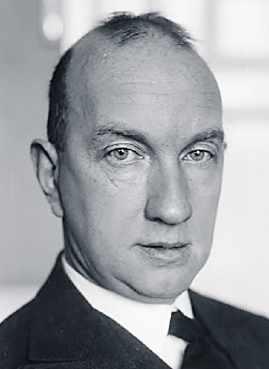
“People are having to ask themselves, do you just watch it unfold, or do you standup? We saw it play out with the universities, where Columbia and others tried to make their peace with Trump and do a deal, but he just came back for more… the dilemma of what to do when you are faced with this kind of authoritarianism, some of those questions are back in our time.”
He is ready to apply such criticism to Israel, too: “I do think Netanyahu is engaged in amassing an accretion of power at the centre, but posing a real threat to Israeli liberal democracy, too.”

He reminds people that Israel “has few constitutional restraints – it’s basically the attorney-general and the Supreme Court, that’s it.
I ask Freedland about his often-criticised role at The Guardian and whether he would apply such criteria to his work at the paper. Was he, too, “watching events unfold?”
He says: “I hear the criticisms of me all the time. I would ask the critics as follows: do you think it’s likely or unlikely that I challenge a lot of the coverage that you don’t see, and some of the coverage that

you do see, internally? And do you think institutionally, that a place like Columbia University would be better or worse if Simon Schama was not there? Do we think it’s better that we as Jews vacate such institutions or our voices are still there, still heard?”
He acknowledges that “a lot of The Guardian reporting has been very uncomfortable for pro-Israel Jewish readers – but a lot of it has checked out and is robust.”
He adds: “When Israel is doing the things it’s doing, do we believe the problem is the reporting of those things, or the doing of
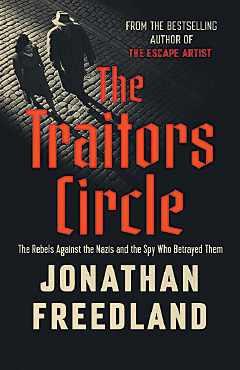

those things? I speak broken-heartedly about these things. That’s such a stain for the Jewish people, that for me it dwarfs questions about coverage.”
He believes the Jewish community still has to get to grips with the enormity of what has happened and thinks it will radically alter the diaspora conversation with Israel for years to come.
The Traitors Circle: The Rebels Against the Nazis and the Spy Who Betrayed Them by Jonathan Freedland is published today, priced £22

A
Agirl in a white dress walks down the aisle with her father. Ladies in gowns and men in suits enjoy a drinks reception, a sit-down dinner, live band, speeches and a cake. Sounds like a Jewish wedding. Except it isn’t – it’s Queen Charlotte’s Ball, highlight of the London season, where debutantes are presented, and this year a Jewish girl was among them.
Dahlia Myers, 16, by all accounts a regular Jewish teenager from Manchester, last weekend wore a £250,000 diamond Bulgari necklace and a magnificent white satin Josephine Scott dress as one of 17 debutantes at a spectacular ‘coming out’ ball at One Whitehall Place.
Queen Charlotte’s Ball, founded in 1780 by George III as a birthday celebration in honour of his wife, Charlotte of Mecklenburg-Strelitz, achieved latter day fame as a focal point of Netflix’s Bridgerton. The annual event continued after her death in 1818 but eventually folded in 1976 after the late Prince Philip described it as “bloody daft”. It was revived in 2009 by former debutante Jennie HallamPeel, who gave it a 21st century overhaul with a focus not on entering high society and finding a husband, but on networking, etiquette and charity fundraising. Debutantes presented curtsey to a large birthday cake in honour of Queen Charlotte.
host their own debutante balls – notably one in Washington DC – but the London ball is regarded as the most prestigious.

It was an exciting week for Dahlia. She visited the House of Lords where she took part in the Berkeley Dress Show, modelling garments by royal couturier Stuart Parvin. She also went with mum Debbie to Harrods to be fitted with the necklace, which was on loan for the evening. “I said to her, ‘don’t lose it!’” says Debbie. She also had etiquette lessons, dancing classes and a dinner where she met the other debutantes and escorts. Debbie is founder and CEO of Qube Events, an event planning and styling company. The London Season has been her client for nine years. “They are very much keeping up the traditions and the etiquette,” she says, “but they also see the ball as an opportunity to raise money for charity, while the girls gain confidence and learn how to conduct themselves. Dahlia achieved a lot from the experience.”

A maximum of 150 guests, including the girls, their parents, their escorts and other family members, pay £500 per head to attend. Debutantes have to be invited to apply and do so from all over the world. Other countries
There is no doubt that this is a ball for the elite. As well as the ticket price (with some people taking an entire table for their family and friends) there is a cost for each of the preball events, which this year included a dinner at Syon House, the ancestral home of the Duke of Somerset and the present home of the Duke of Northumberland, and a cocktail party in the former Chairman’s suites at Harrods. At the ball Harrods and Bulgari had a table each, and there were some minor royals in attendance including The Duke and Duchess of St Albans.
Girls must apply on The London Season


website with a CV and a photograph and if successful are then invited for an interview. There is a long waiting list and lots of celebrities want their daughters to attend, but Debbie says “they turn them all down because it’s not about the publicity. They’re looking for girls who are doing good things in society such as charity work.”
Debbie is always invited to attend herself; last year her husband Michael couldn’t go with her so she took Dahlia, who clearly made an impression. “I got an email afterwards saying Dahlia has got really good deportment and we’d love to invite her to apply.”
Dahlia had a lot to put on her CV. She was a leader on the Chabad Whitefield batmitzvah course, she runs the children’s services at Whitefield Synagogue and she did a leadership course at the shul. She also won a Women of Whitefield Young Person’s award. Her long-term involvement with the World Scout Jamboree saw her win a place on a trip to Korea for a month.
At the etiquette classes Dahlia learnt about the Texas dip, a special curtsey which involves lowering yourself all the way down and touching your head to the floor. “I asked my
rabbi if it’s okay to curtsey to a cake because Jews can’t bow to idols.” Sadly, the rulingbowing permitted, head touching the floor not - meant the Texas Dip was out. . Debbie, former events manager for UJIA, has been running Qube Events for 18 years. She is responsible for all the styling at the ball, including the flowers, the linens, the chairs and the decor surrounding the all-important cake. This year the ball had a poppy theme to commemorate 80 years of VE Day, so Debbie went with red and gold décor. Chelsea pensioners in their red uniforms wheeled in the cake and all girls wore a poppy brooches. In keeping with the lavish style there was a gold mirrored table plan and matching place names with tassels. “One of the men, Lord someone or other, said the decor surpassed Buckingham Palace,” says Debbie, proudly.
Although the girls come from diverse backgrounds, Debbie says ,“it’s not the type of thing Jewish girls would usually apply for, although ironically we are used to going to lavish events like this. It’s really nice for me to give people a taste of what we can create and it’s an honour to be involved.”
“Being a debutante was a really good experience,” says Dahlia. “I didn’t keep it hidden at all that I am Jewish. I spoke to the girls about it and they were all very respectful. I’ve made a connection with girls all over the world, been invited to stay in a castle in Bruges, and to Washington to meet some of the other debutantes.” And the Jewish presence there is growing, she mentions: “Coincidentally, one of the boys on my table found out two weeks ago that his mum is Jewish.”









Your family's trusted mental healthcare clinic
Highly Qualified GMC Registered Consultant Child & Adult Psychiatrists
CQC Rated Good in all 5 categories
Shared Care & Liaison With Family Doctor
Comprehensive assessments & treatment for wide range of mental health conditions.
Direct liaison with GPs, employers, universities, schools, and the DWP to support your needs.
Access to effective, tailored treatment plans to help you manage and recover.
In-house psychotherapy with experienced professionals for consistent, ongoing care.


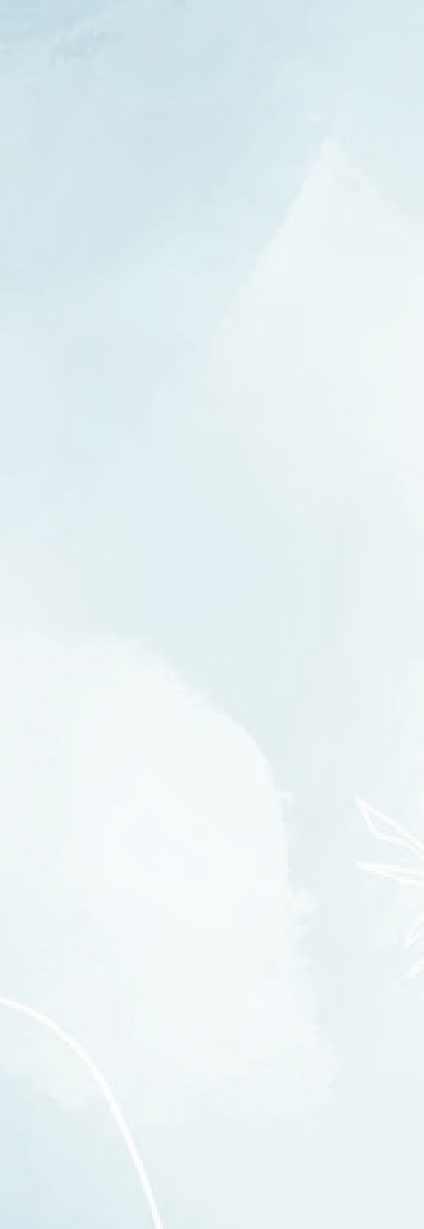


With Candice Krieger candicekrieger@googlemail.com

n the aftermath of the October 7 attacks, Jewish professionals Ben Peters, Josh Kanter, Josh Morris and Daniel Turgel recognised a shared need within the business community: many Jewish colleagues were feeling shaken and isolated, and were yearning for connection. In response, they set out to create a network that would bring Jewish professionals from every sector together — a place to stand in solidarity, support one another, and foster a renewed sense of belonging. Their mission became Beacon – “a network designed to ensure no Jewish professional feels alone in their workplace,” says cofounder Ben Peters, head of strategic partnerships at United Trust Bank (UTB). “Through social, educational, cultural, leadership and philanthropic initiatives, Beacon galvanises people from all industries, empowering them to strengthen their Jewish identity while
building lasting connections, fostering a sense of strength and community.”

It all began with a simple but powerful first step: a small gathering of 15–20 people from a range of industries. Fellow founder Josh Kanter, vice president at Ares Management, recalls: “Following October 7, like everyone, we were sitting at our desks, devastated, not wanting to speak to people, feeling all the horrors everyone felt. It was incredibly isolating - I spent time calling all my Jewish connections in my industry. We pulled together a small group, creating a safe space to talk. The first event left everyone feeling empowered. That’s when we knew we had to keep going.”
Beacon has put on several larger highprofile events, including Shining the Light event at JW3 in November 2023, which
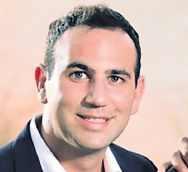

drew more than 500 people to hear stirring addresses from Jonathan Goldstein, CEO of multinational investment firm Cain International, Bill Benjamin, partner and co-head of Ares Real Estate, and television’s Rachel Riley. “This was a defining moment that proved the hunger for connection was real. We heard from people who had worked in the City for 15-20 years saying they had never felt so alone before,” says Kanter. Events since have included In Conversation with Danny Cohen at JW3 last year where the President of Access Entertainment and former Director of BBC Television shared his insights into media, leadership and community. On 7 October 2024, Beacon marked the first anniversary of the attacks with an online memorial session attended by over 150 people, featuring Bill Benjamin alongside October 7 survivor Lotan Pinyan. Two months later, in December, over 250 people from the community came together once again for Chanukah Unplugged, an intimate and uplifting evening with acclaimed musician Israel Portnoy, hosted at law firm White & Case, where Daniel Turgel is a partner. Most recently, in February this year Beacon commemorated Holocaust Remembrance Day by welcoming survivor Manfred Goldberg MBE, who shared his life story in a moving address. On 19 October, Beacon is bringing over hostage negotiator Glenn Cohen, former chief psychologist of Mossad, who served over 30 years as an Israel Air Force pilot, for an exclusive behind-thescenes account of the ongoing hostage crisis
at an event in north London in partnership with WZO UK.
“We are not trying to reinvent any wheels,” says Kanter. “We just want everyone to know there is a place for them to come to, a network to feel safe in.” Beacon’s programme has grown rapidly but it is about more than the events.
Now with a growing database and a partnership with the Jewish Leadership Council and Jewish News, Beacon is on its way to becoming the leading organisation for Jewish professionals in the UK. Turgel, a partner in the global M&A team at White & Case and co-head of the firm’s global technology practice, says: “Beacon is relevant to everyone in the City – young or old – and at all levels of seniority. We are all facing the same dilemmas. People just want to be with others who understand. That’s the power of Beacon.” Beacon is planning to launch a monthly newsletter acting as a hub to signpost and connect to other Jewish organisations, hold career days, as well as running social activities and cultural trips alongside a planned series of networking and industry specific events. There are also plans to launch a mentorship programme, connecting senior leaders with emerging talent in the Jewish community. As Josh puts it: “The leaders of today are asking: who are the next generation of Jewish leaders? We want Beacon to be the place that answers that question.”
Claudia Mendoza, CEO of the JLC, notes: “Beacon is playing a critical role in building resilience, unity, and pride among Jewish professionals. By creating spaces where people can connect and support each other, they’re strengthening the entire community.
“We want to create something longlasting,” adds Peters. “In five years’ time, we want people to look back and ask: how did we ever function without it?”

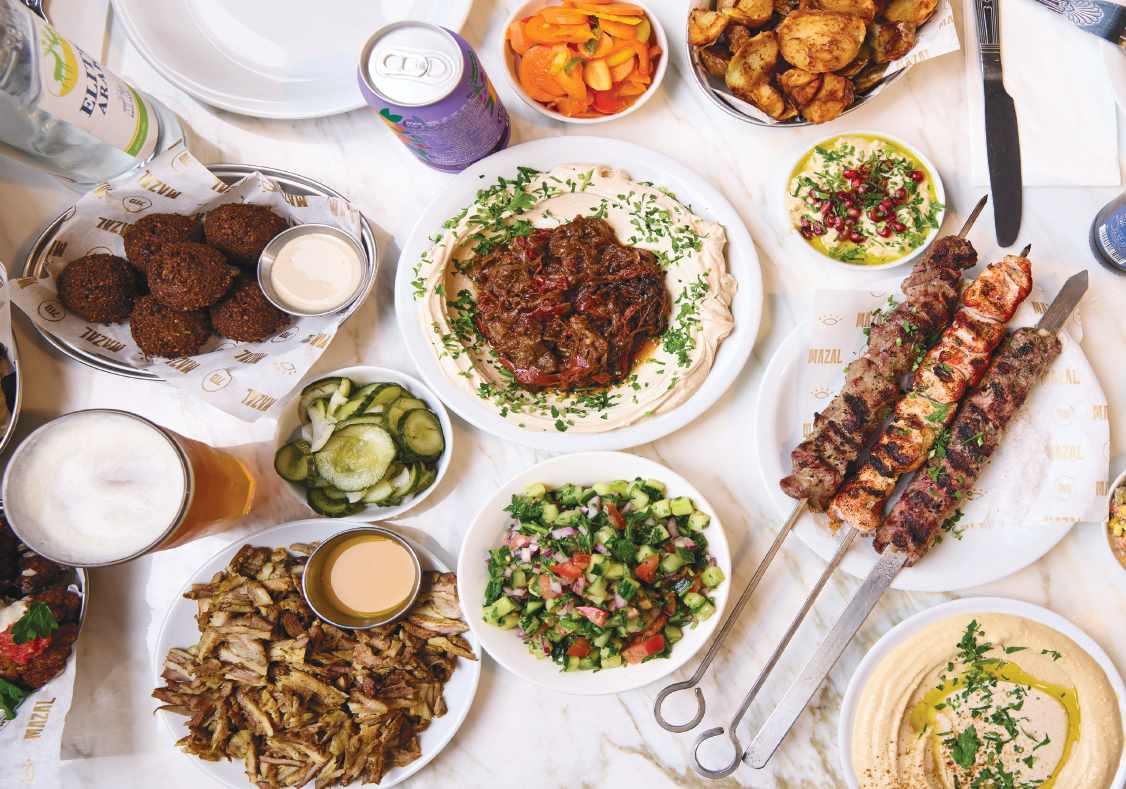
Need Cash Fast?
Sell your gold and coins today! Can’t choose the diamond ring you are looking for?
Receive the best prices for your unwanted gold today! Call Jonathan 020 8446 8538
9ct per gram - £30.80
14ct per gram - £48.05
18ct per gram - £61.60
21ct per gram - £71.86
22ct per gram - £75.23
24ct per gram - £82.12
Platinum 950 per gram - £28.50
Silver 925 per gram - £0.64
Half Sovereigns - £300.93
Full Sovereigns - £601.85
Krugerrands - £2554.29
We also purchase sterling silver candlesticks and any other other sterling tableware www.howcashforgold.co.uk
Come and see us in our North London showroom for the best engagement ring selection.
We can create the design of your dreams ...and at a wholesale price!
We can supply any certificated GIA, IGI, HRD natural or diamonds of your choice.


We wish to purchase any Diamond and Gold Jewellery



@jewellerycave
lab-created


Personal and Confidential Customer Service
Price Offered Instantly Same Day Payment


A free valuation from our in house gemmologist and gold experts on anything you may wish to sell. If you are thinking of selling, we purchase all diamonds in any shape, size, clarity or colour. WE PAY MORE than all our competitors. Try us, and you will not be disappointed!
Jewellery Cave Ltd, 48b Hendon Lane London N3 1TT • T: 020 8446 8538 • E: jonathan@jewellerycave.co.uk • www.jewellerycave.co.uk


Transform your home with quality flooring from leading manufacturers WHY CHOOSE US?
• Personalised customer service providing you with seamless handling from choosing your carpet through to aftercare
• We have over 3,000 carpets for you to choose from
• Our in-house fitting teams means you can be assured of attention throughout the fit
78 Edgware Way, Edgware HA8 8JS 020 8958 5498

mowbraygary@gmail.com

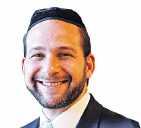
BY RABBI ELCHONON FELDMAN CHAIR OF THE RABBINICAL COUNCIL OF THE UNITED SYNAGOGUE & SENIOR RABBI OF BUSHEY UNITED SYNAGOGUE
This week many of us in London faced the familiar frustration of a disrupted commute due to the latest TfL Tube strike. Yet as I sat in congested road tra c, my mind turned to a very di erent, far more tragic kind of disruption to the morning commute, one that occurred at Jerusalem’s Ramot Junction on Monday. There, two terrorists opened indiscriminate fire on commuters during rush hour, killing six innocent people and wounding many more, before they were mercifully neutralised.
Perspective is a valuable and often costly gift and the juxtaposition of the two disruptions made me think about journeys.
It is no coincidence that the theme of journeys is also at the heart of the Torah readings
of these weeks. Last week’s sedra began with the words ki teitzei (when you go out). This week opens with ki tavo (when you arrive). The story of our people is bound up with this rhythm of going and coming, exile and return, journeys and arrivals. Jewish life is not static – it is a mission, a constant movement towards an ultimate destination. Perhaps this is why, at the end of life’s journey, our final blessing at a levayah is: “May you now rest in peace”. Until that moment, life is always in motion, always striving to arrive.
But what does ‘arriving’ really mean in Judaism?
For the Torah, it is not about revenge, reprisal or even conquest. Ki Tavo commands us, on arrival in the Land of Israel and the cultivation of its land, to bring bikkurim, the first fruits, accompanied by a declaration of gratitude. To arrive is to give thanks, to tell the story of our journey, to a rm that we are part of something larger than ourselves: a people brought home
by the hand of God.
This message feels especially poignant to me this year. My wife and I have been blessed that our own firstborn, our bikkurim, so to speak, is spending this year studying in Jerusalem, a mere fifteenminute walk from Ramot Junction. As a parent, the proximity of terror and blessing, danger and miracle, is deeply moving. What a privilege, despite adversity, to see the Jewish people continuing to arrive in eretz Yisrael, the land of our ancestors, defying the odds and continuing the story.

being presented; it is history, destiny, and the miracle of arrival itself.
The first Rashi on the Torah notes that from the very creation of the world, bereishit (in the beginning), God was waiting for reishit bikkurim: for the Jewish people to bring their first fruits in gratitude. No other o ering in Judaism carries such an elaborate declaration. It is not merely produce that is
Yes, God waited two millennia to hear his people declare: “I have arrived home.” And still today, despite heartbreak, despite bloodshed, we keep on coming and arriving. Each of us adds our own chapter to this ancient journey. And so we say, in the face of adversity: “Despite all the odds, I have come home. I have arrived.” And we will, please God, continue to do so.




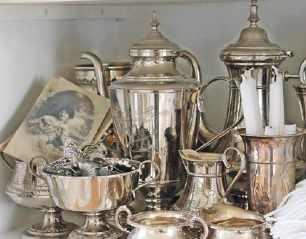









BY RABBI DEBBIE YOUNG-SOMERS EDGWARE & HENDON REFORM SYNAGOGUE
I love spending quality time with my kids over the summer holidays, but there is a sense of relief that descends as school returns, and we get back into a sense of routine. I am so grateful to the teachers and schools who walk through the most formative years with our children and us together, despite shrinking budgets, challenging behaviour and a rapidly changing world.
My daughter, who has just started preparing for GCSEs, came home excitedly this week to report how wonderful it was to be in a science class where everyone wanted to learn – she felt in one lesson she had absorbed more than in months of lessons last year. It reminded me of a school parent who had complained to me that her frustration with the school was that the teachers hadn’t earned her childs
respect. I was rather taken aback – surely our teachers (and everyone) should automatically have respect. Respect can be lost, but surely we should respect everyone we meet rather than expect everyone to earn our respect? As Ben Zoma says in Pirkei Avot: “Who is wise? One who learns from every person.” If our children are waiting for teachers to impress them, rather than excitedly waiting to learn, it makes it a real challenge.
On Yom Kippur, another moment of resetting in the year, we will read about Moses asking if he can see all of God. The answer is a firm no – no one can see all of the Divine and live – our brains aren’t built for it. But Midrash tells us that all the Israelites gathered at Mount Sinai were able to see a glimpse of God. Each person was able to access a tiny part of the greater whole. I love this image as it reminds us that


A stimulating series where our progressive rabbis consider Judaism in the face of 21stcentury issues

there is something to be learnt from everyone else’s glimpses. Alone, we can’t possibly grasp it all, but collectively, we come closer to the whole truth, and there is something to be learnt from everyone and what they have seen.
This is a time for resets, fresh starts and
committing to be the best version of ourselves in the coming year. I hope that my children, their classmates and their teachers understand the power of these resets, and the opportunities to learn that each new year presents them, both at school and in the Jewish year.
10 Golders Green Road London NW11 8LL Opposite Cafe Nero
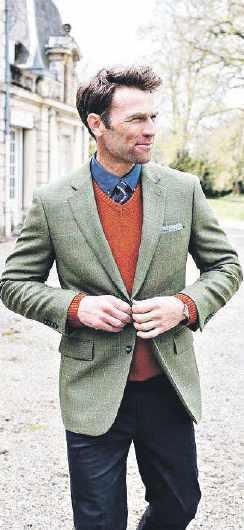






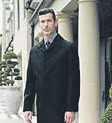
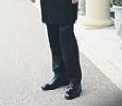
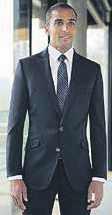









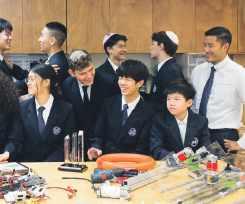

Talented and inspirational Jewish Studies and Hebrew teachers required for our High School section (Grade 6-12) and our Elementary section (Kindergarten-Grade 5) to commence August 2026. Carmel School Hong Kong, a Jewish International School is seeking teachers with:
BA or above in relevant studies, with a recognised teaching diploma. Minimum two years relevant teaching experience in Hebrew and Jewish studies in Primary and/or Secondary schools.
Knowledge of IB PYP and MYP curricula is an asset.
Excellent classroom management skills. Interest and experience in informal education.





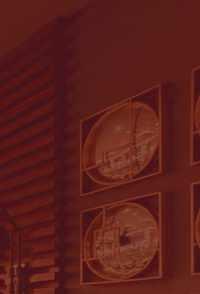
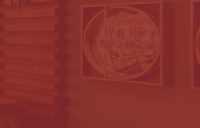



















Jewish News is delighted to be entering a digital-first era with the launch of a new website and new regular glossy magazine. We are therefore seeking an enthusiastic, emerging sales force to help navigate this new era and to sell these exciting new products alongside opportunities with our portfolio of events and community-leading social media presence.
• Achieving personal and team sales targets. Working to the teams agreed yield and series framework.
• Championing digital first solutions with a particular focus on substantially growing New Business.
• Building and developing strong client relationships and attending meetings and events.
• Identifying revenue opportunities from new and existing accounts and selling solution based integrated campaigns.
• Successfully communicating and introducing digital campaigns to existing print clients.
• Effectively selling across the website, digital publications, social, newsletters, magazines and more.
• Working closely with the Jewish News Publishing and Editorial team to ensure a smooth and commercially successful relationship.
• Working with the Social Team to sell and implement new parthership content.
• Liaise with the Head of Finance to ensure all revenue is accurately reported and invoiced.
• SALARY: Approx 36k plus generous commission package but flexible depending on experience



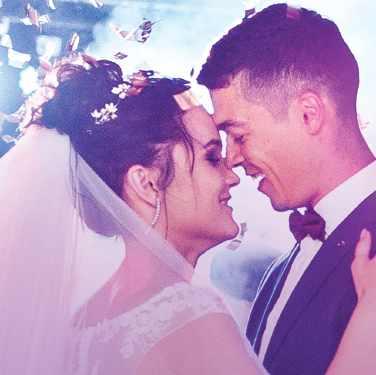

Jewish News presents




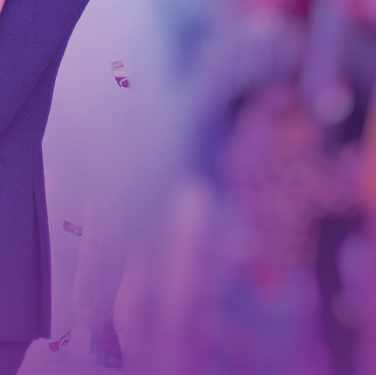

Bar & Batmitzvah show 11AM to 4PM SUNDAY 2025 NOV 30
Village Hotel, Centennial Park, Elstree, WD6 3SB



ANTIQUES
Antique – Reproduction – Retro Furniture (any condition)
Epstein, Archie Shine, Hille, G Plan, etc.
Dining Suites, Lounges Suites, Bookcases, Desks, Cabinets, Mirrors, Lights, etc.
House clearances
Single items to complete homes
MARYLEBONE ANTIQUES - 8 CHURCH STREET NW8 8ED 07866 614 744 (ANYTIME) 0207 723 7415 (SHOP)
closed Sunday & Monday
STUART SHUSTER - e-mail - info@maryleboneantiques.co.uk
MAKE SURE YOU CONTACT US BEFORE SELLING


& WELFARE
Furs, Jewellery, Old Costume Jewellery, Watches, Silver, Designer Bags, anything vintage. 01277 352560
Friendly Family Company established for 30 years

We clear houses, flats, sheds, garages etc. No job too big or too small! Rubbish cleared as part of a full clearance. We have a waste licence. We buy items including furniture bric a brac.
For a free quote please phone Dave on 07913405315 any time.


Confidential Bereavement Counselling for adults and children individually. Support Groups available. We offer in person, online and telephone counselling. Contact Jewish Bereavement Counselling Service in confidence. 0208 951 3881 enquiries@jbcs.org.uk | www.jbcs.org.uk
Call our Legacy Team on 020 8922










